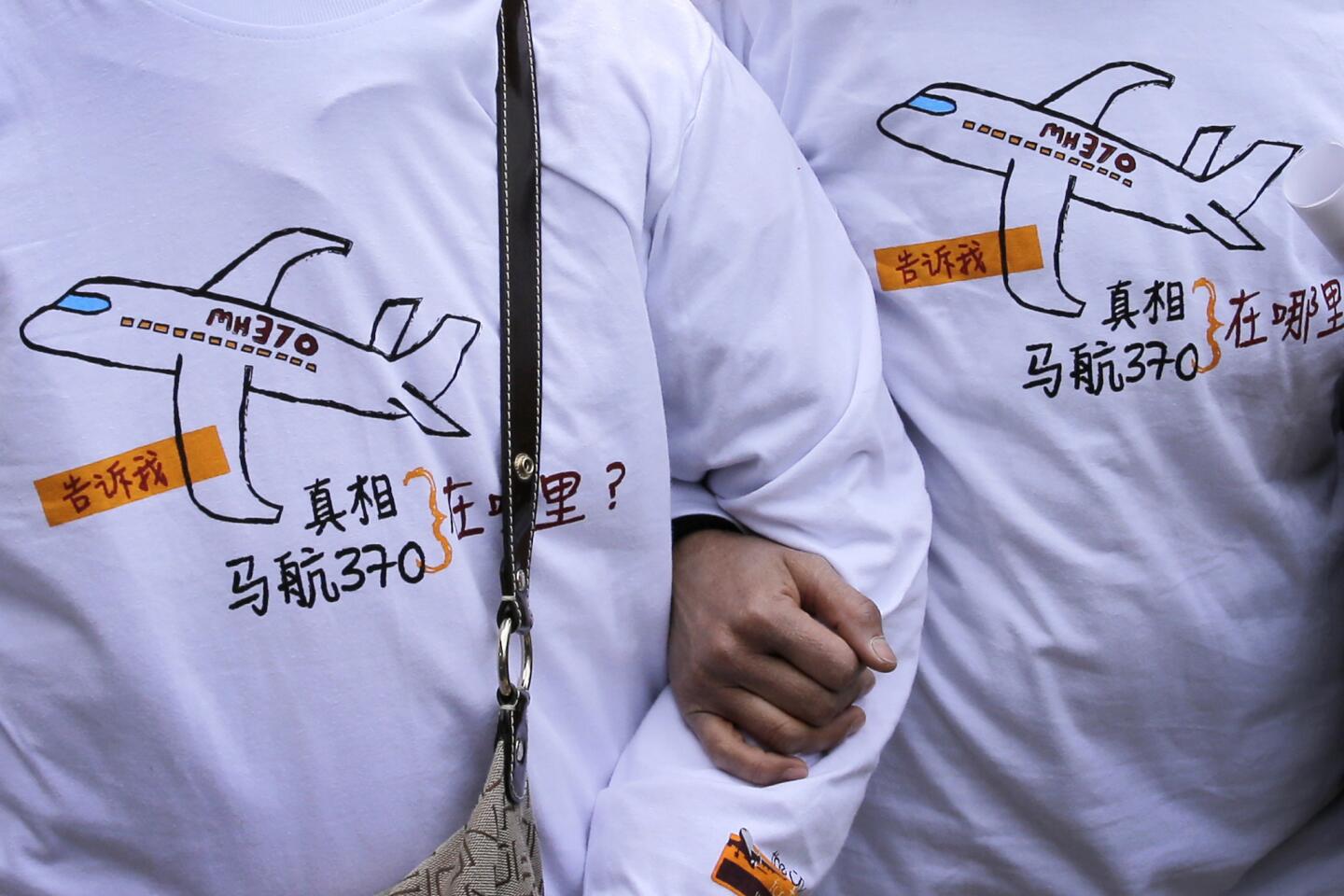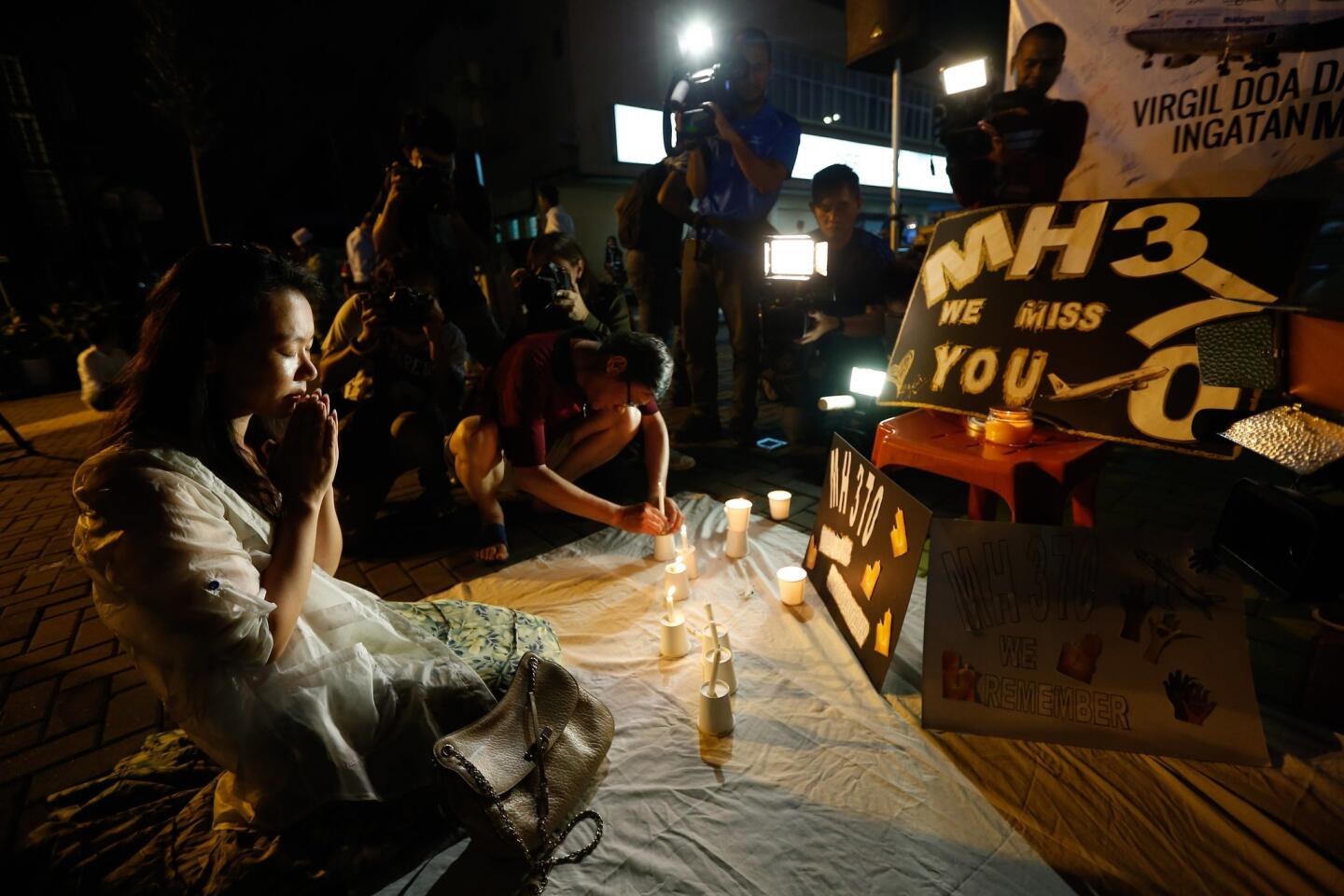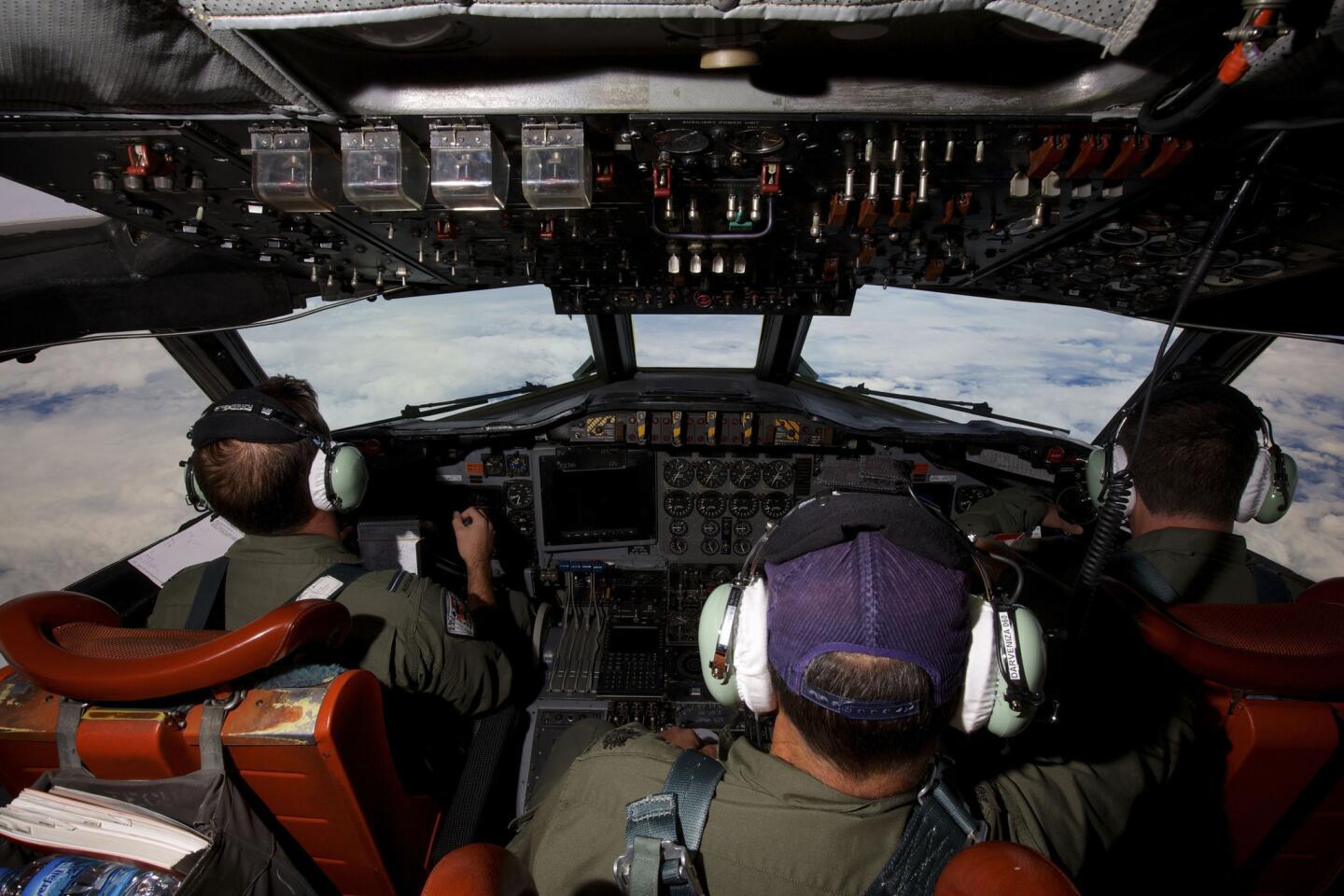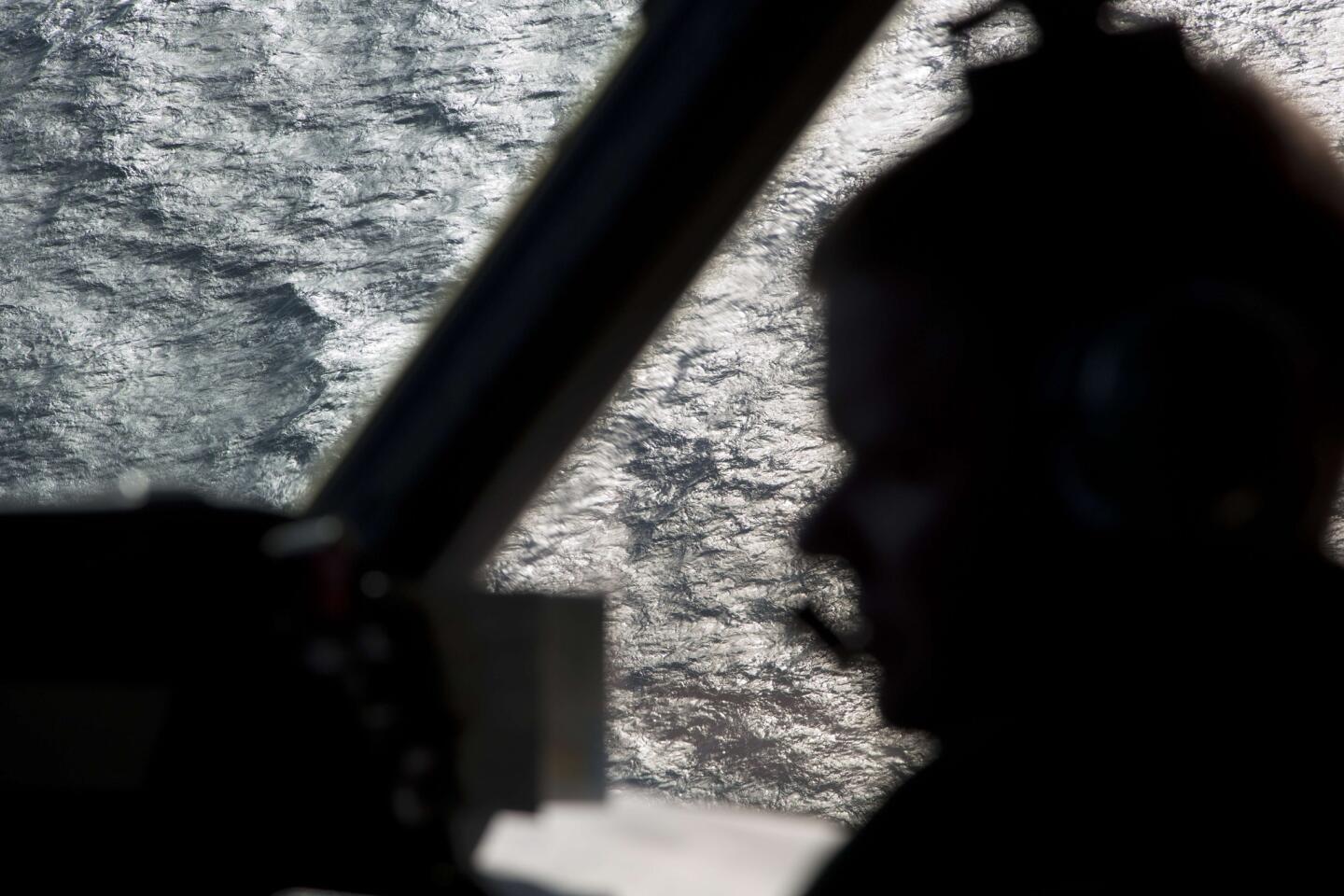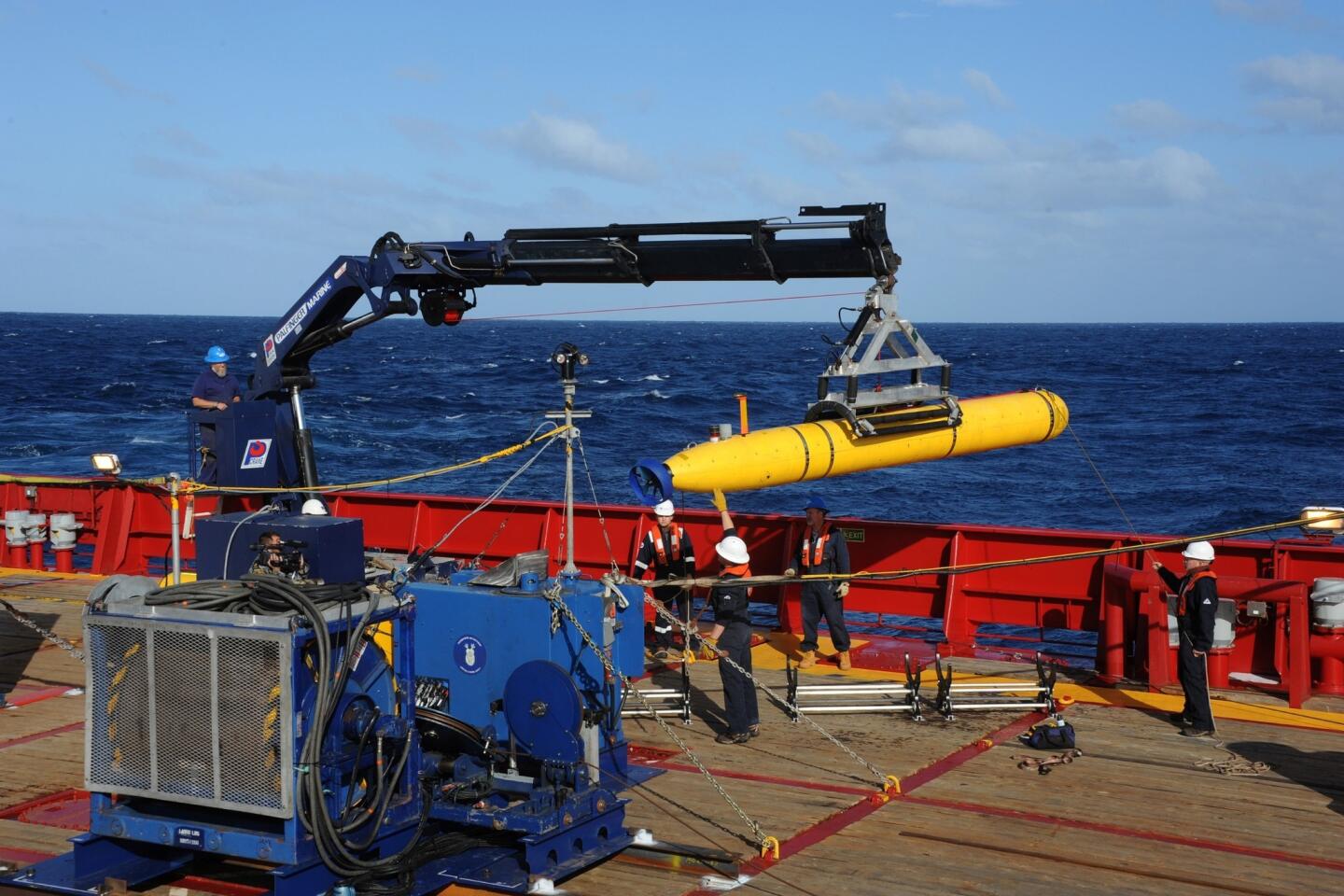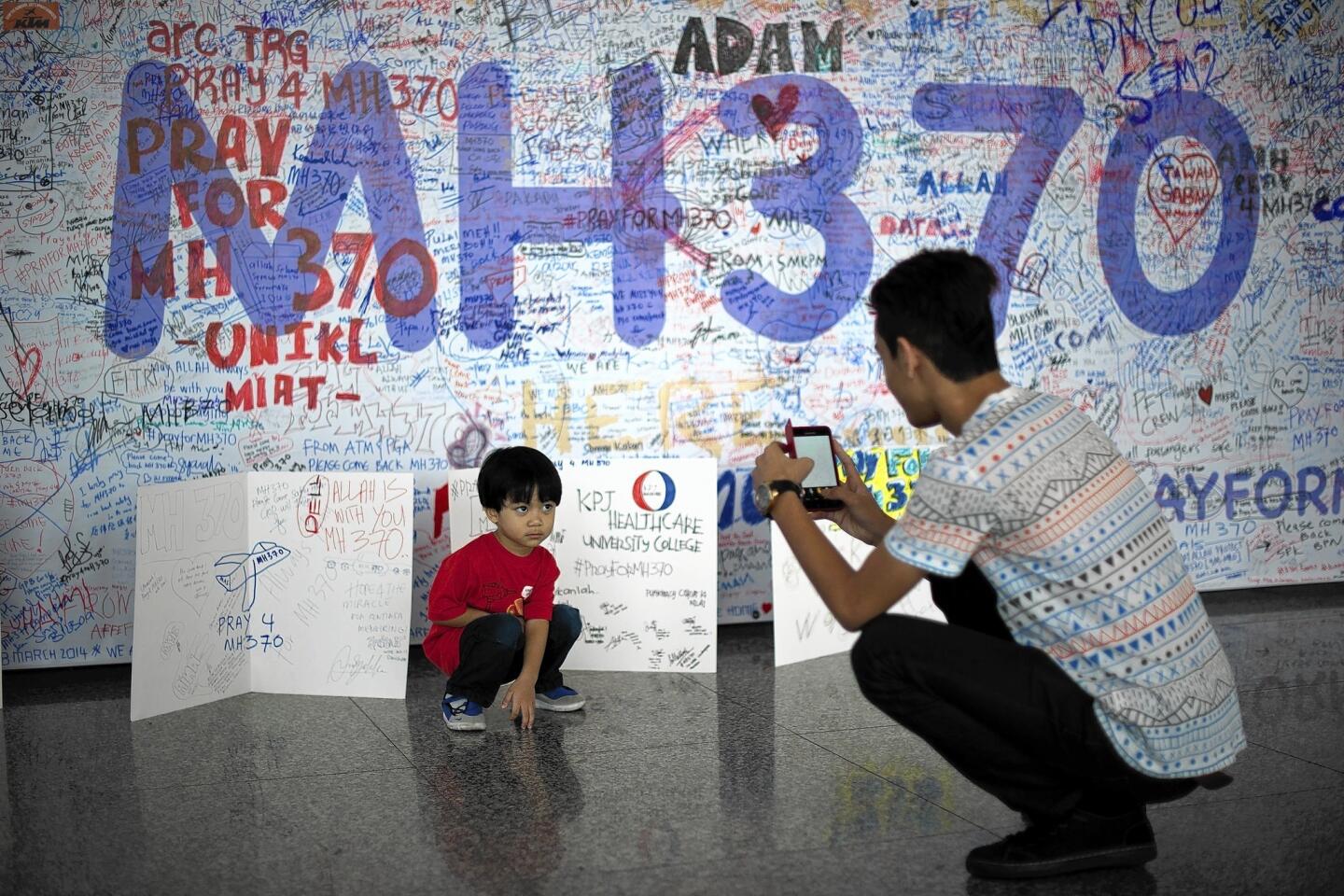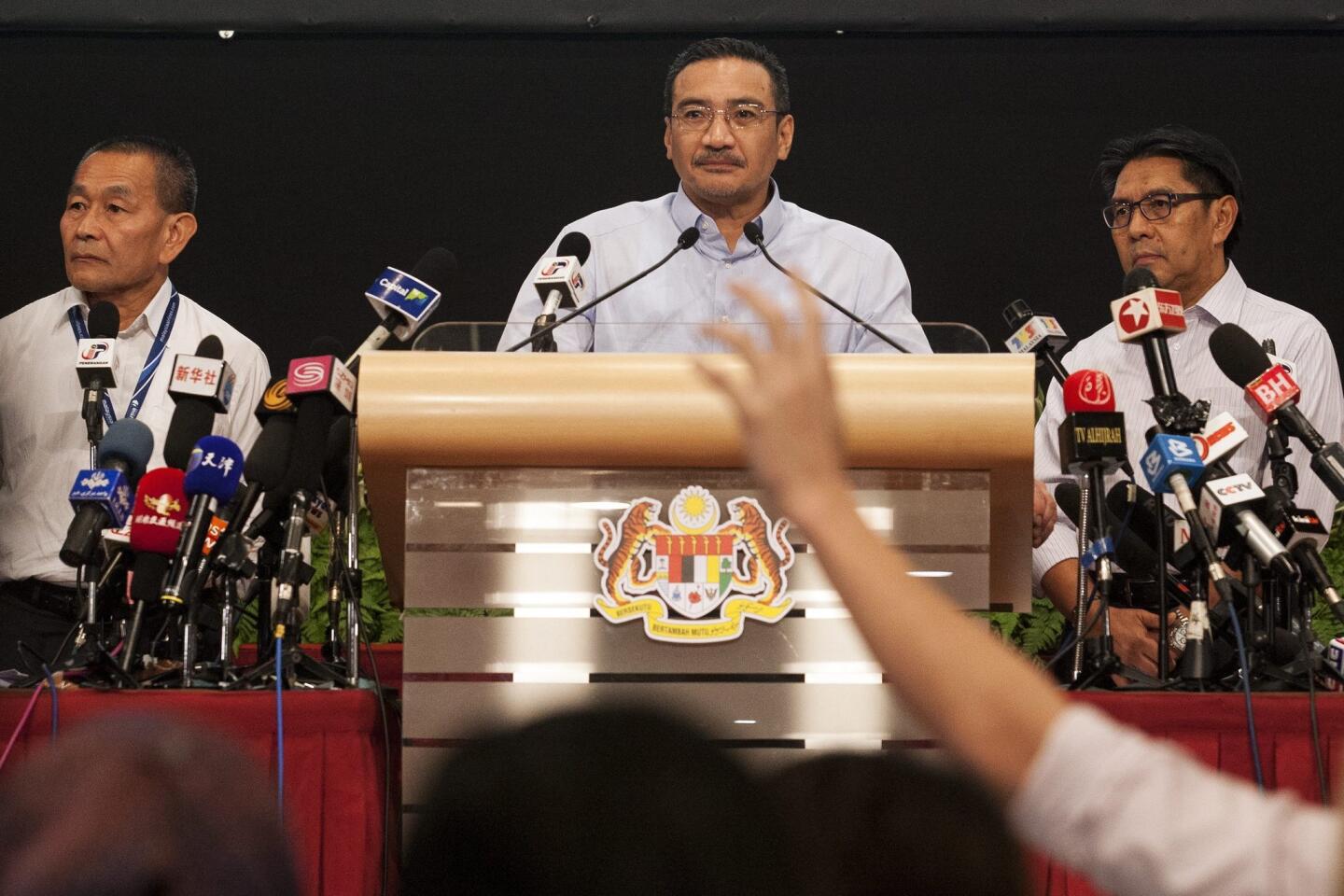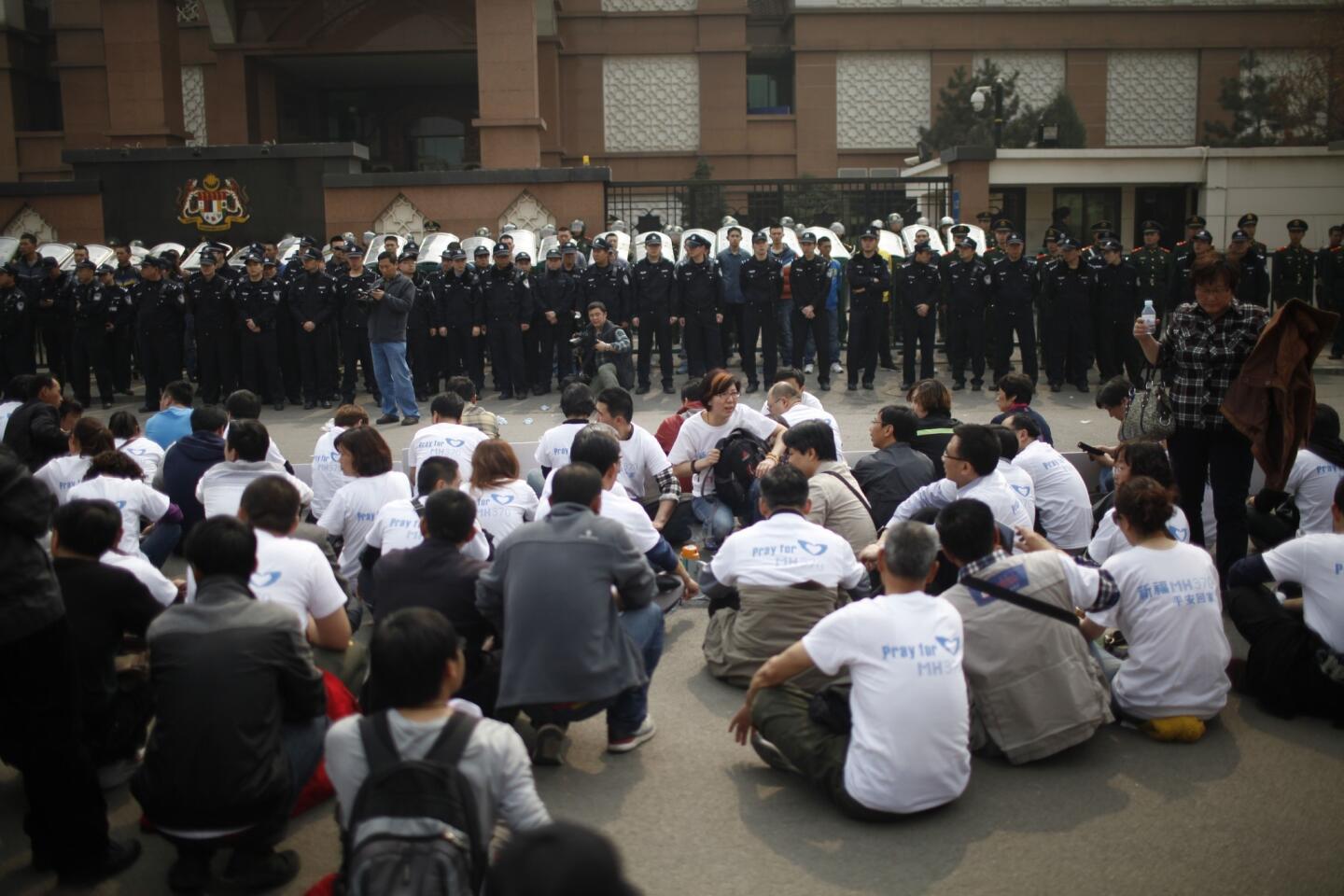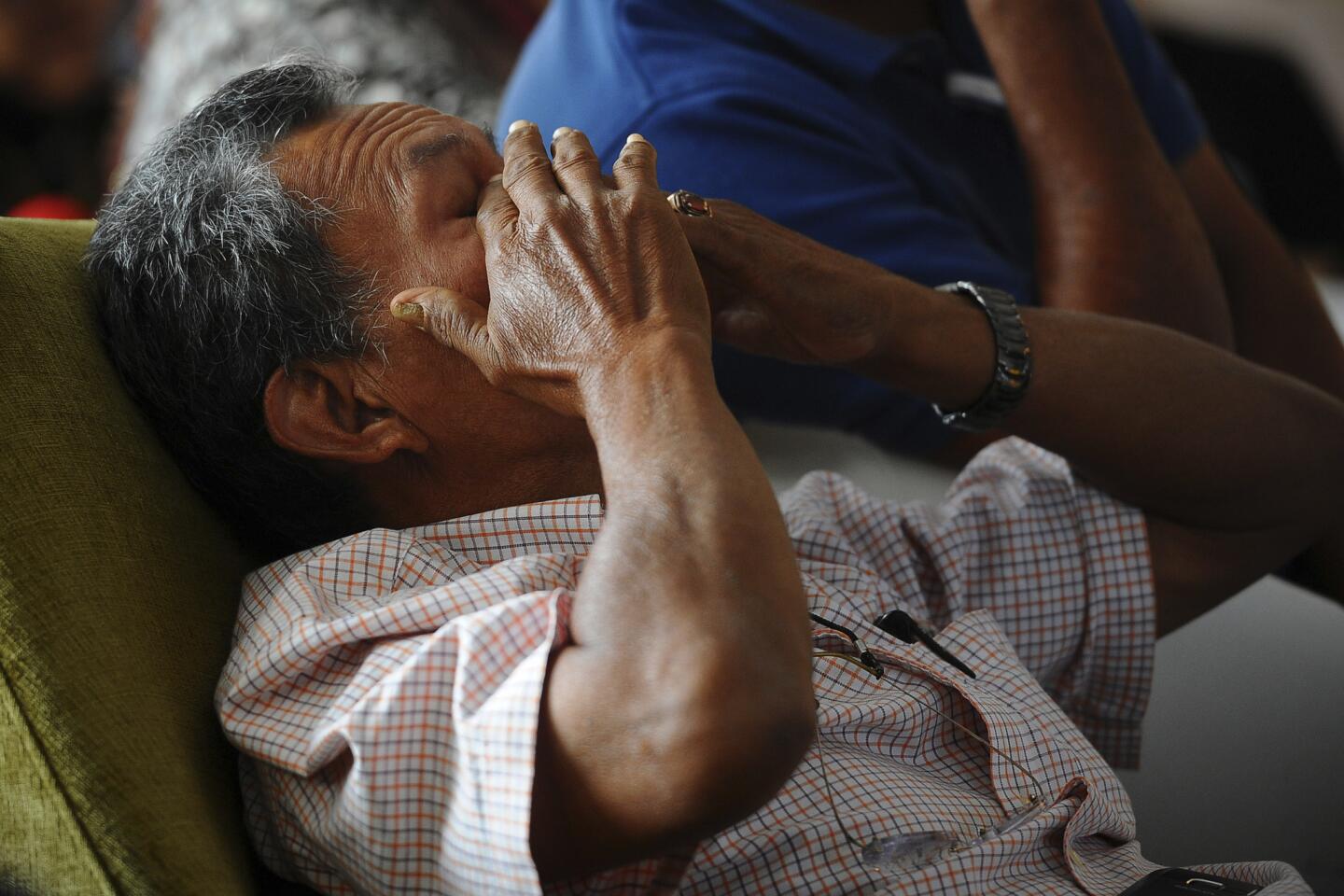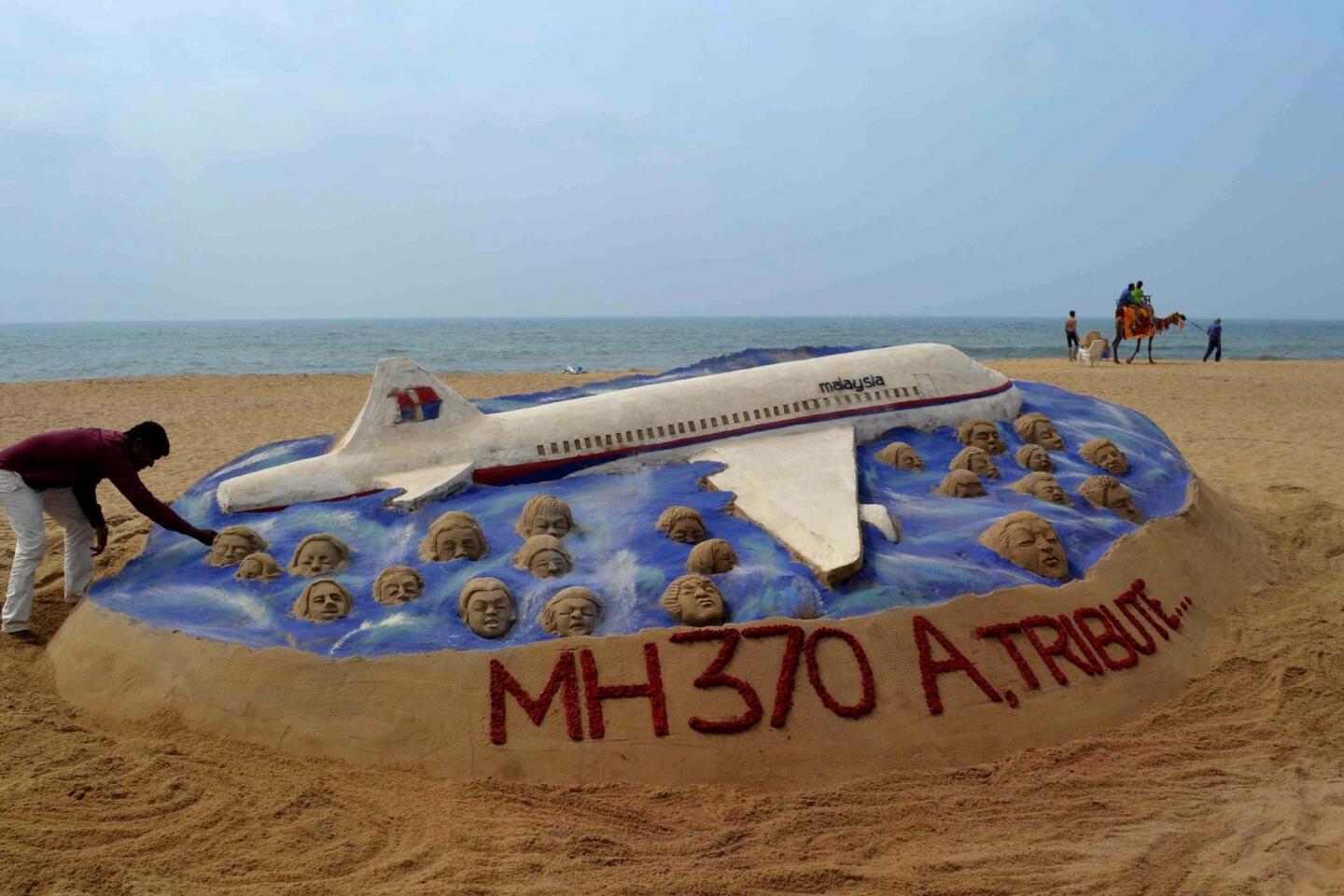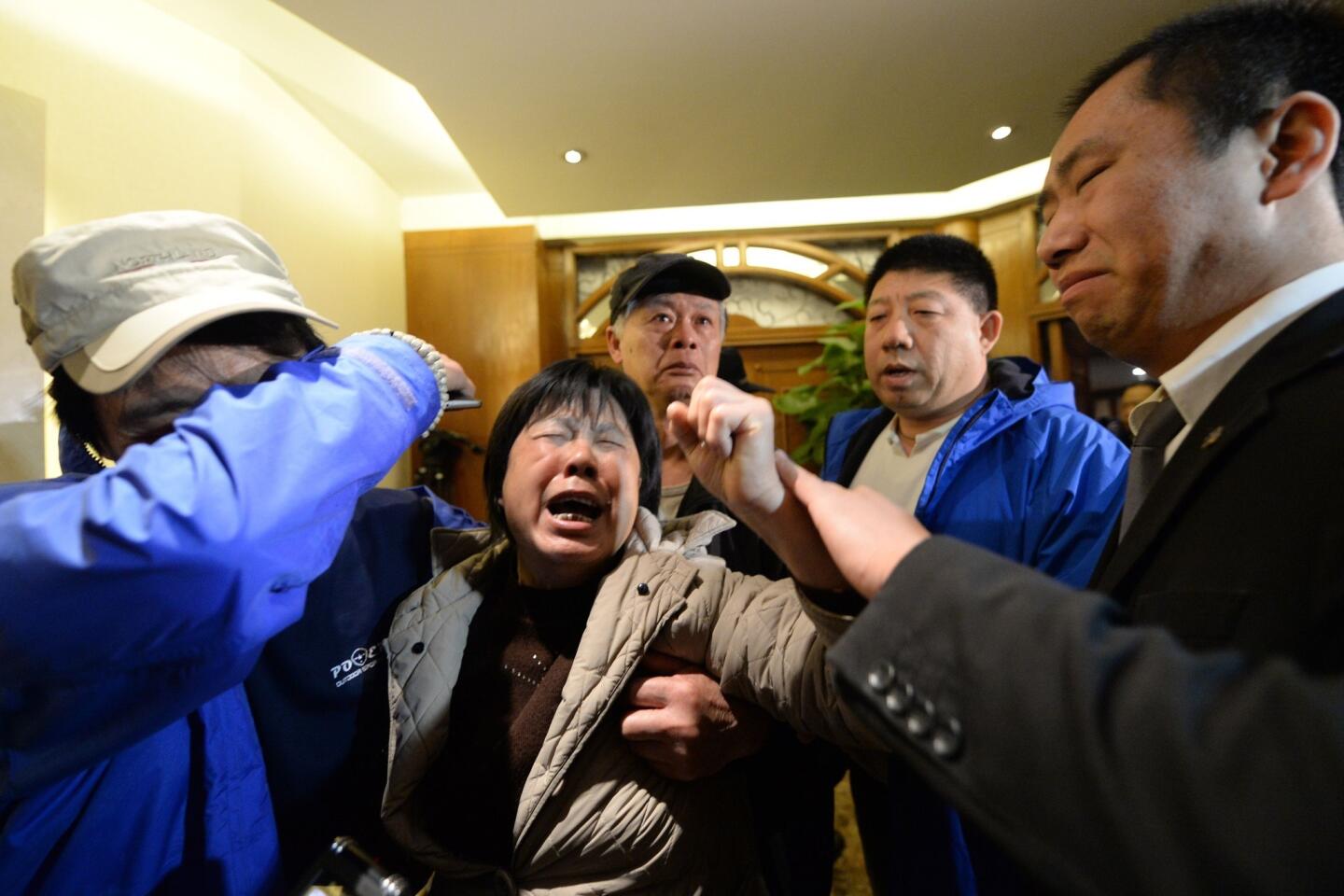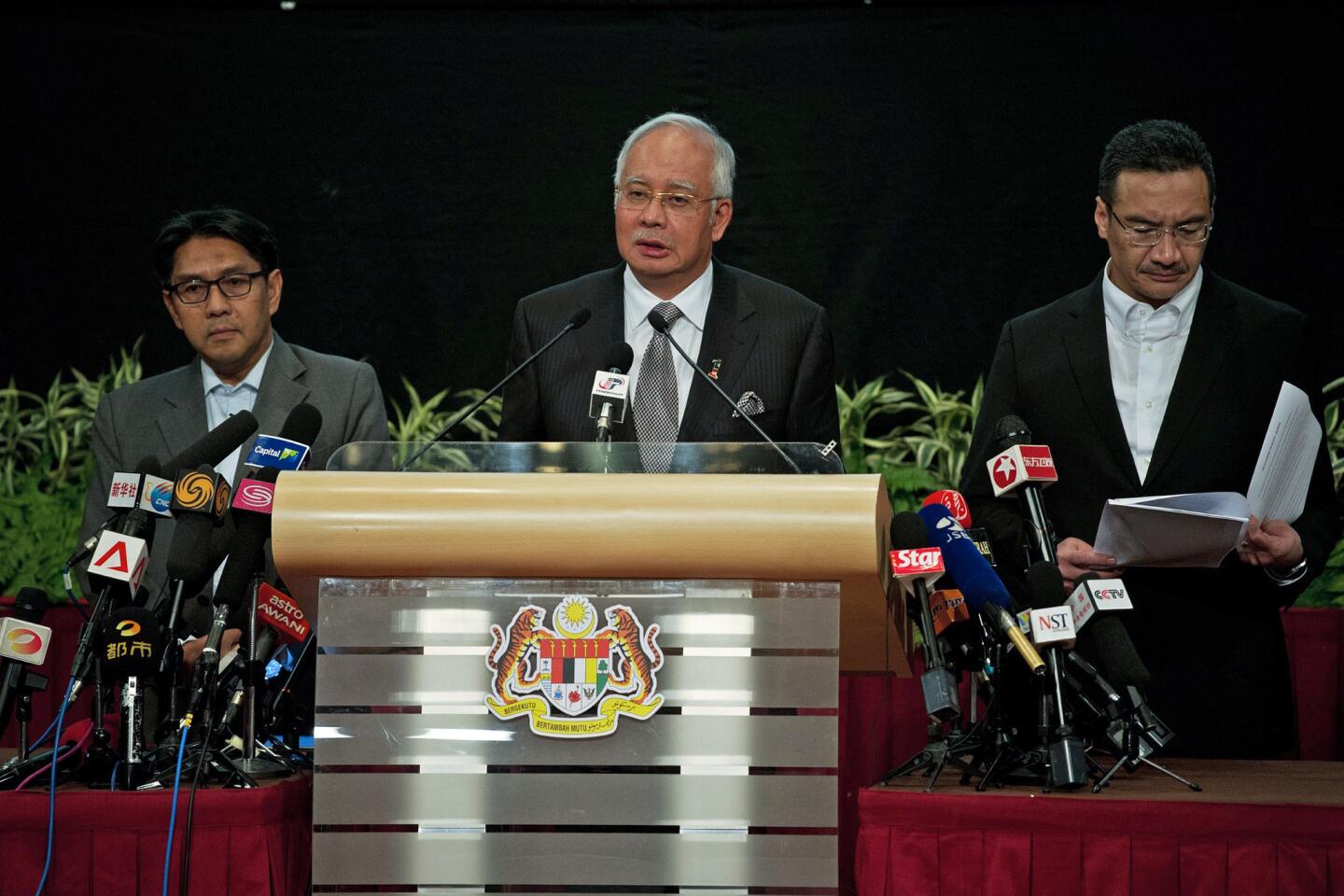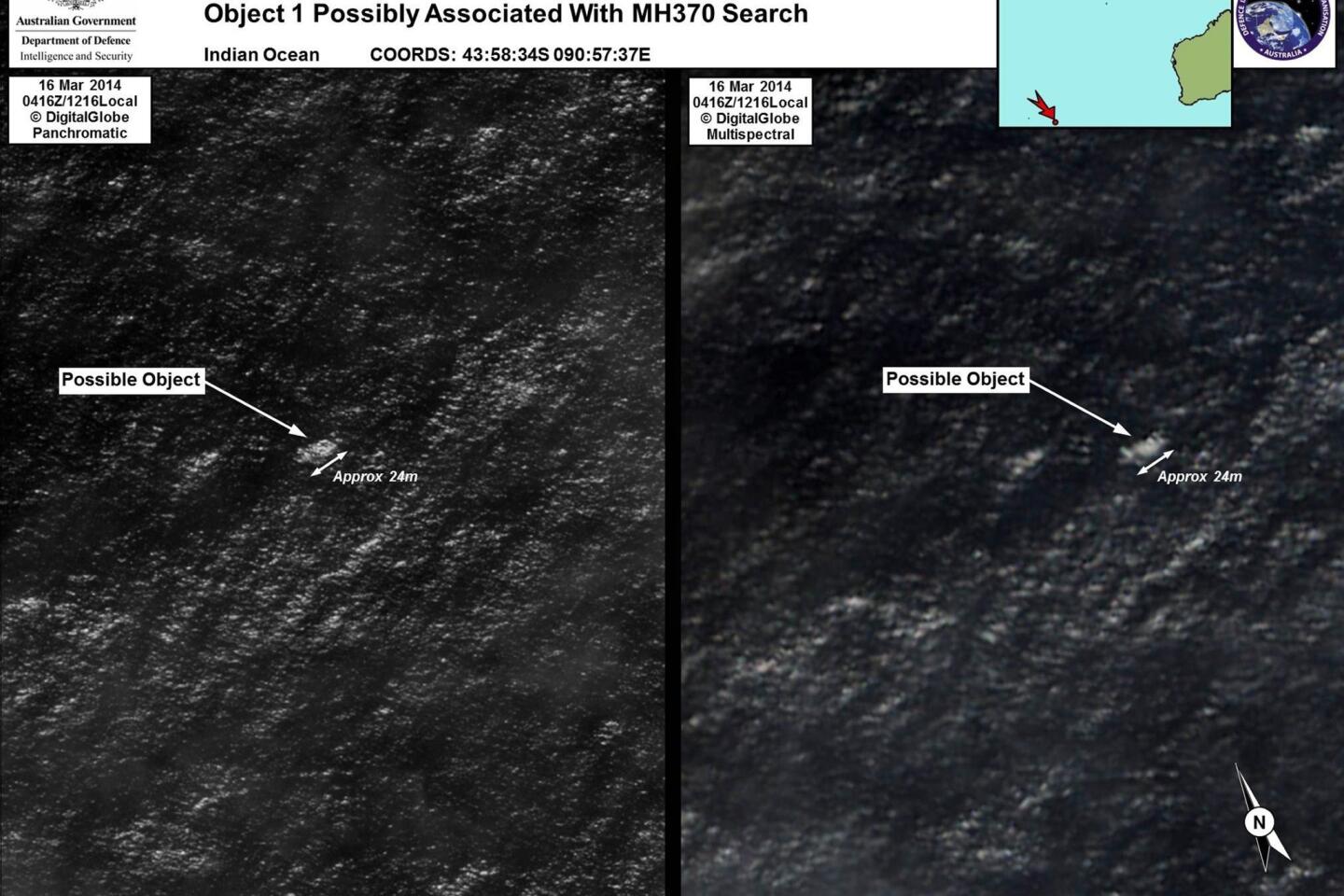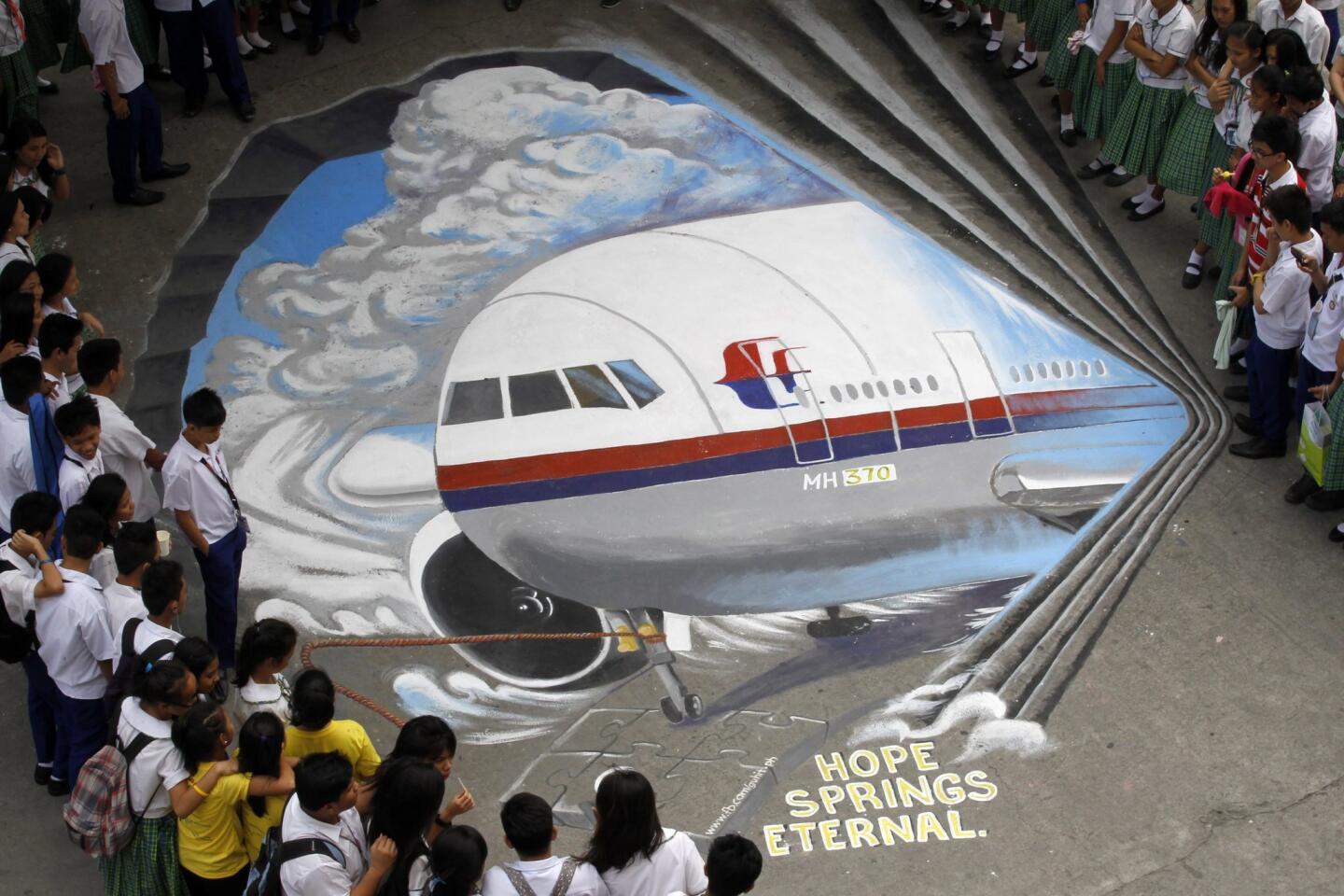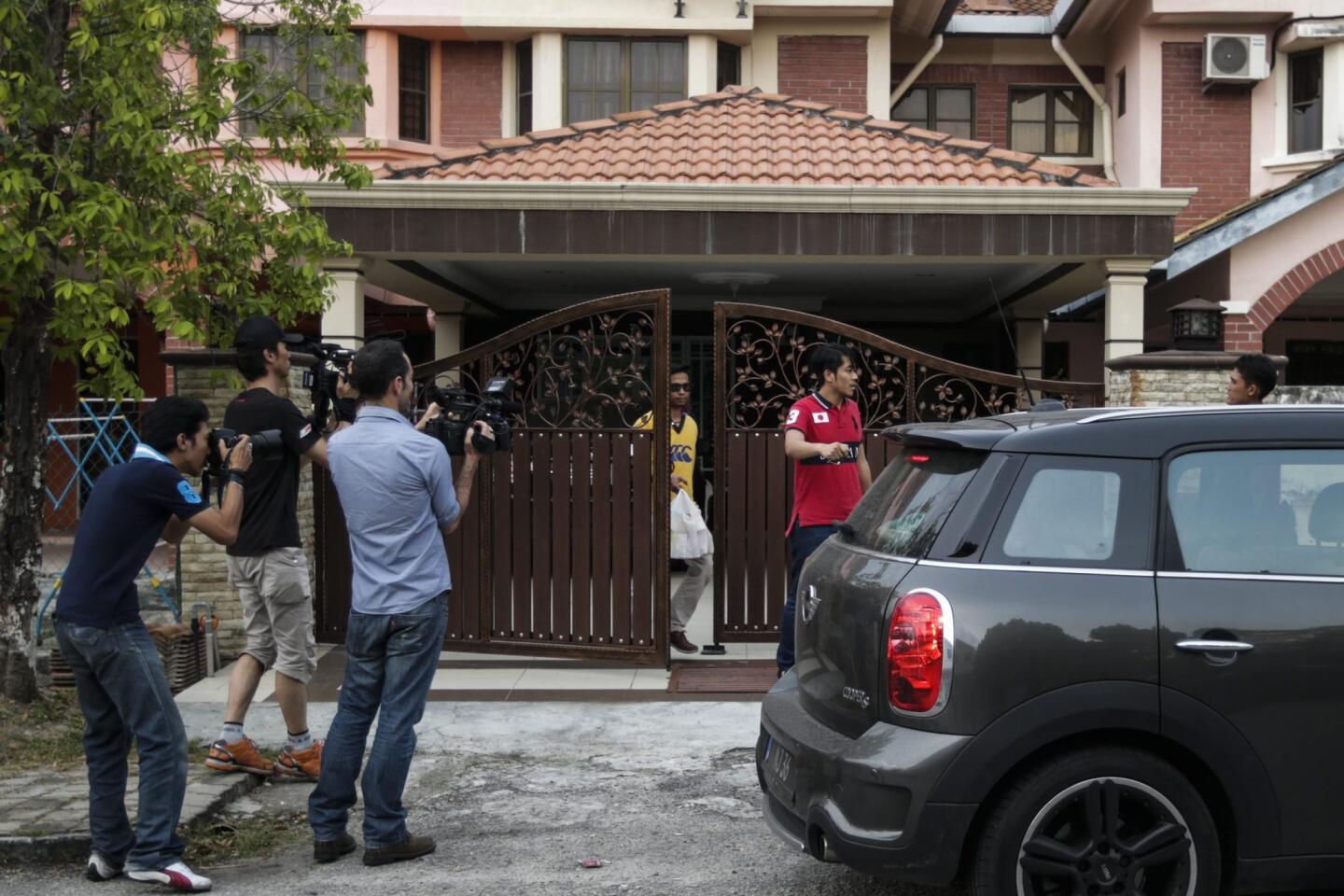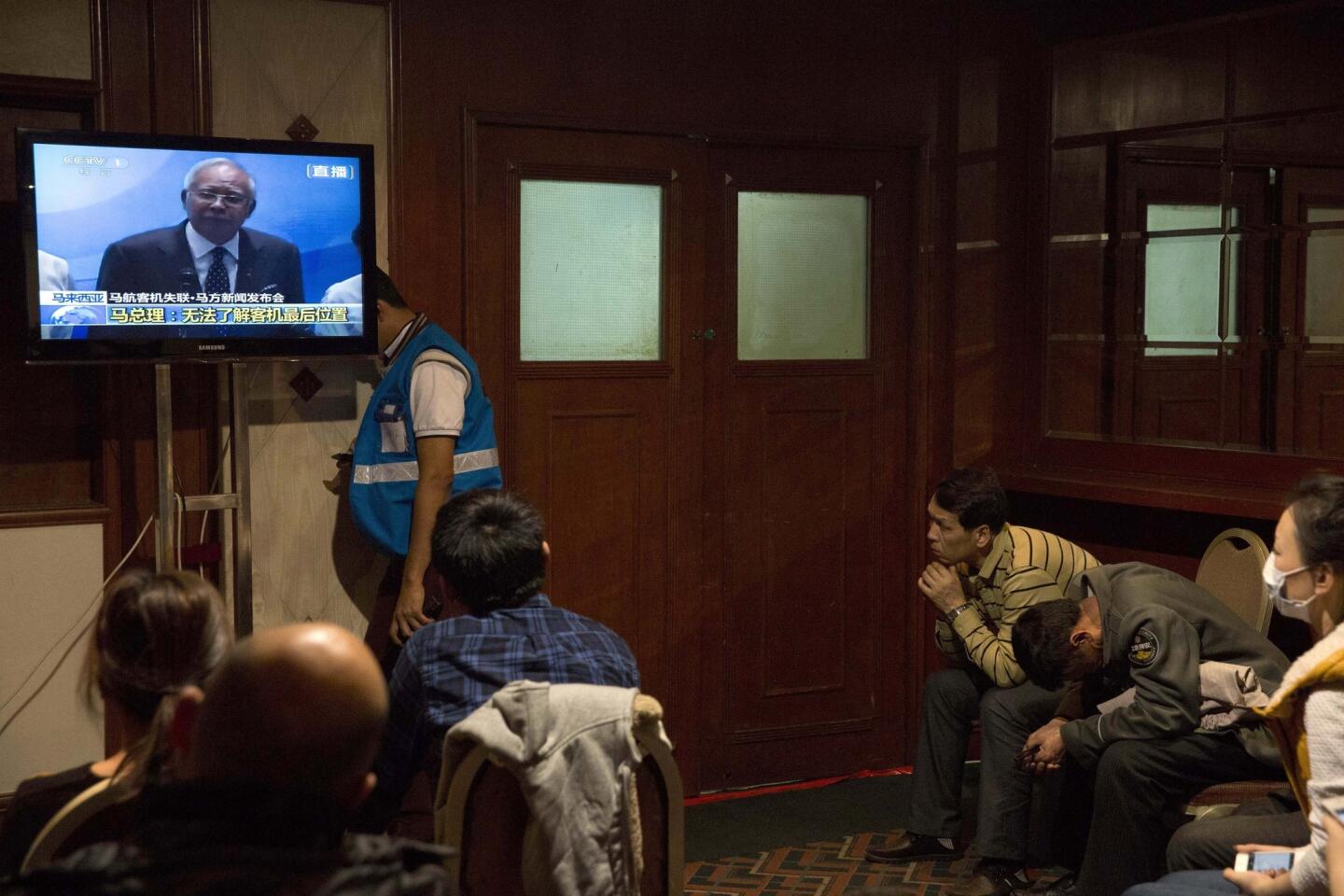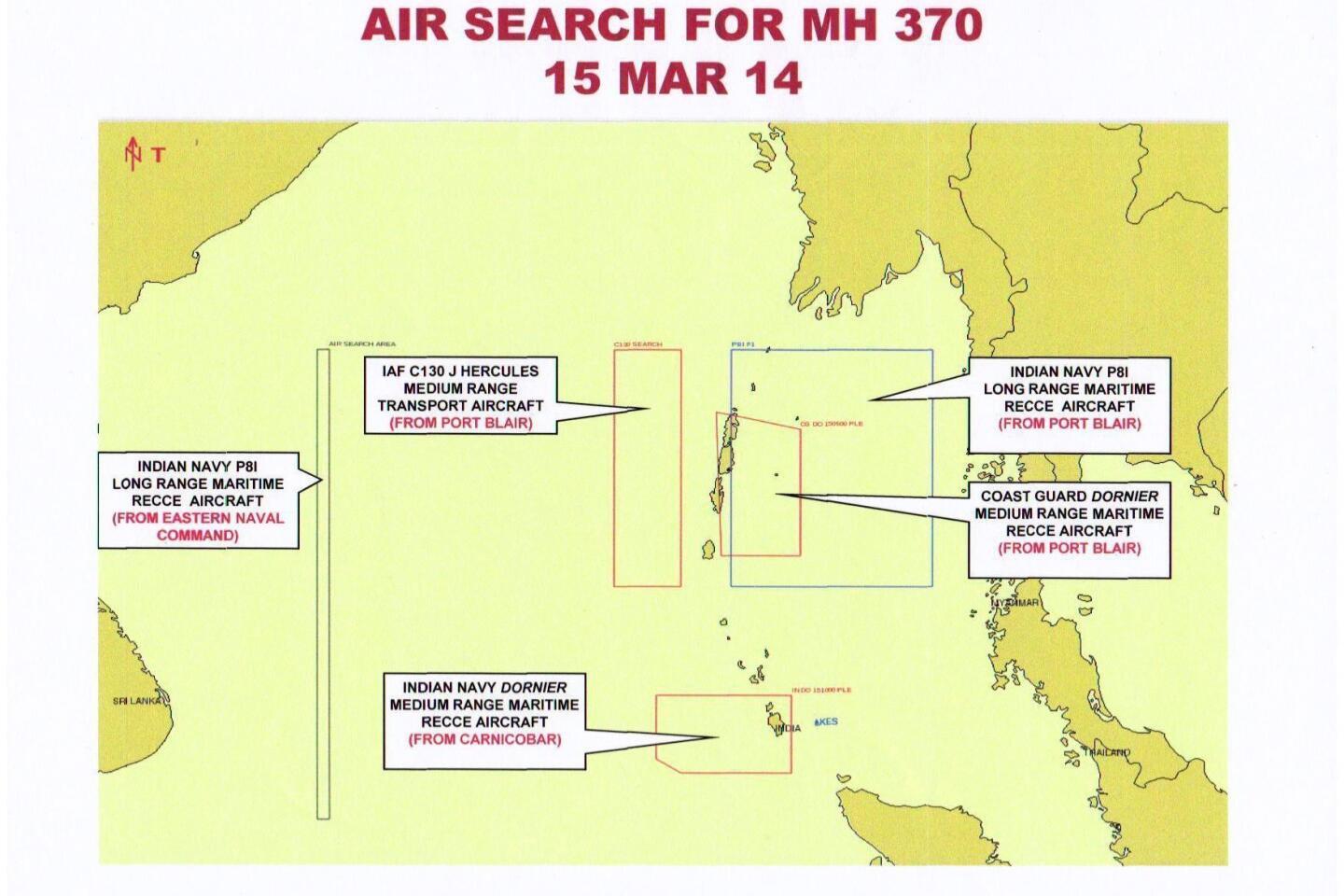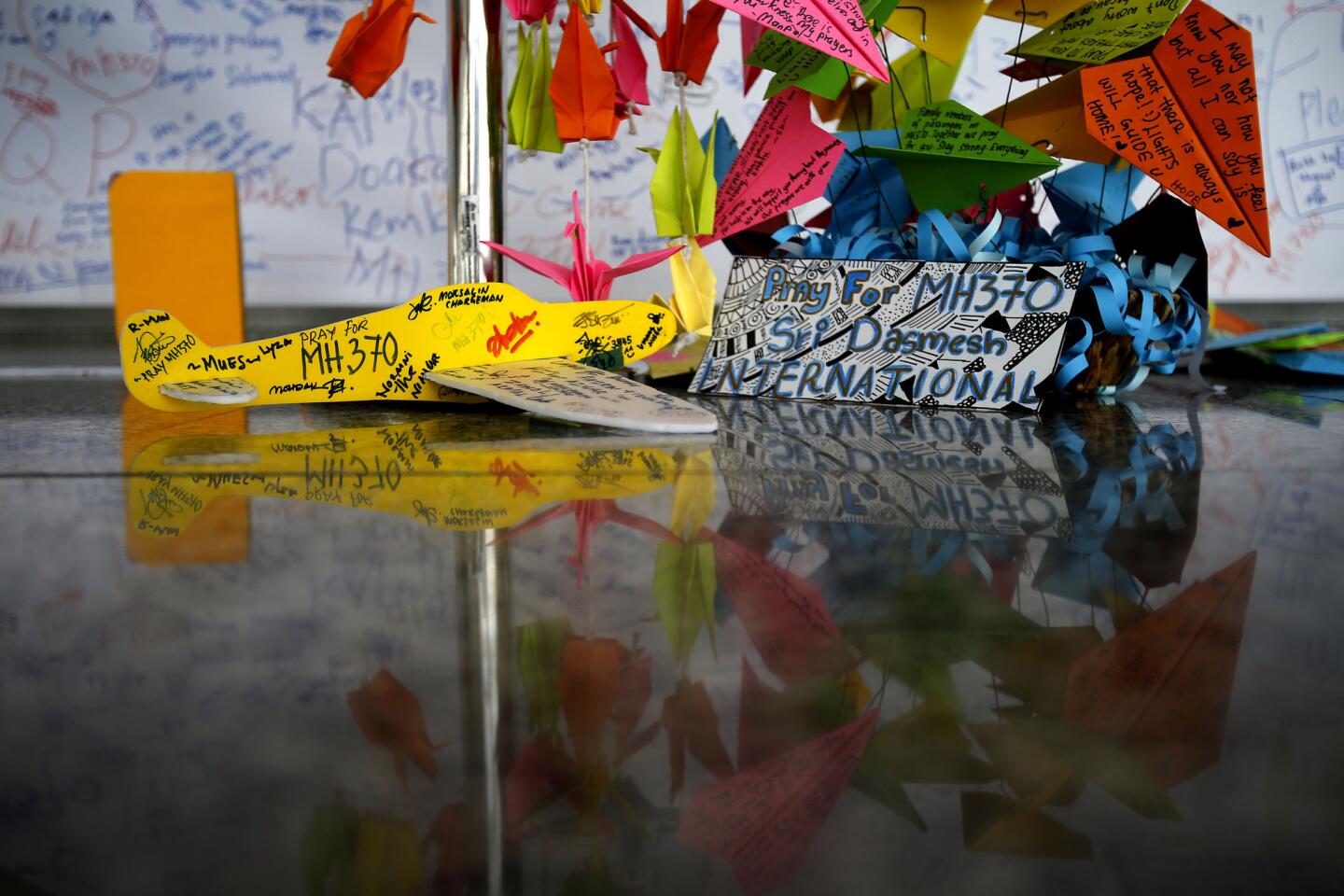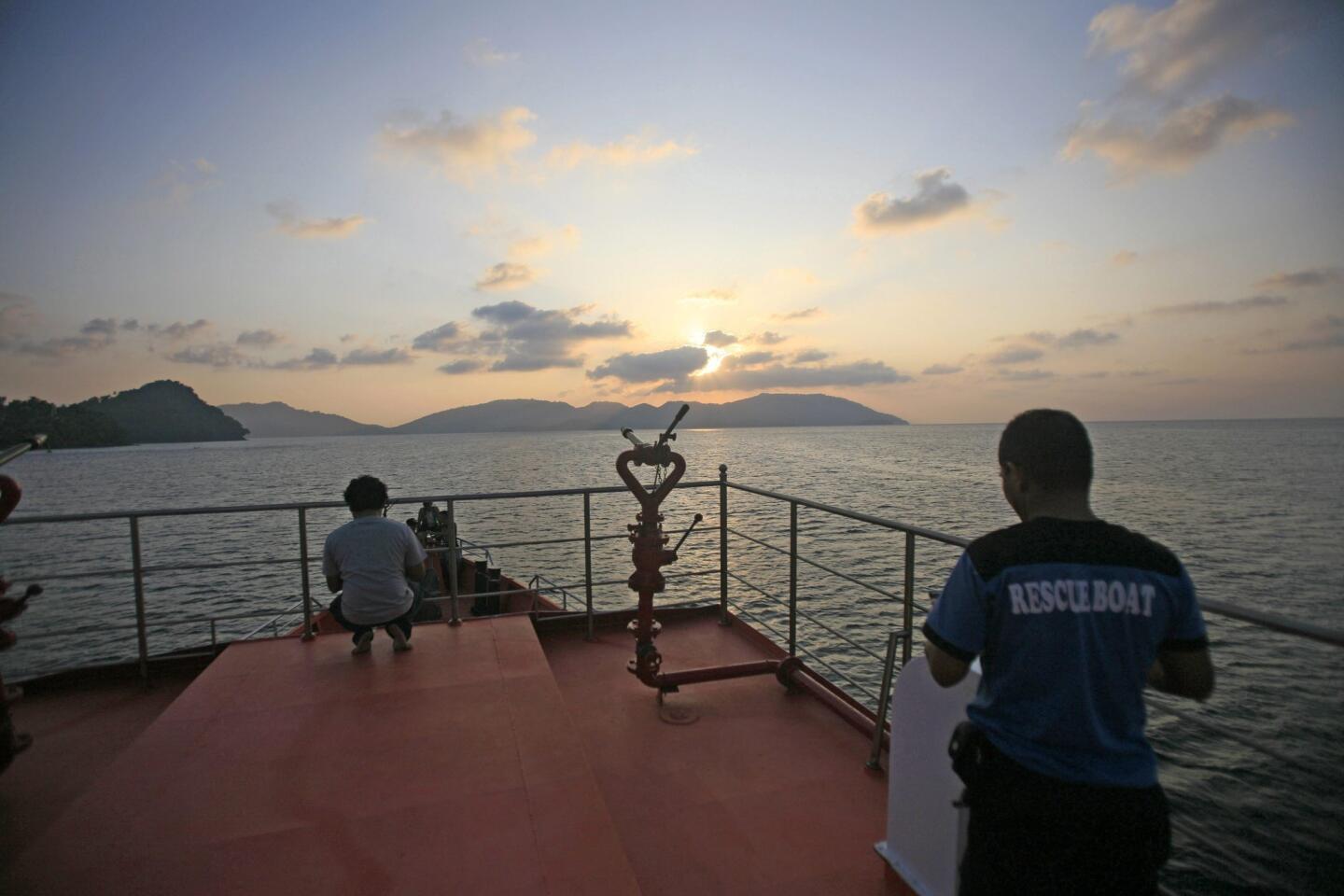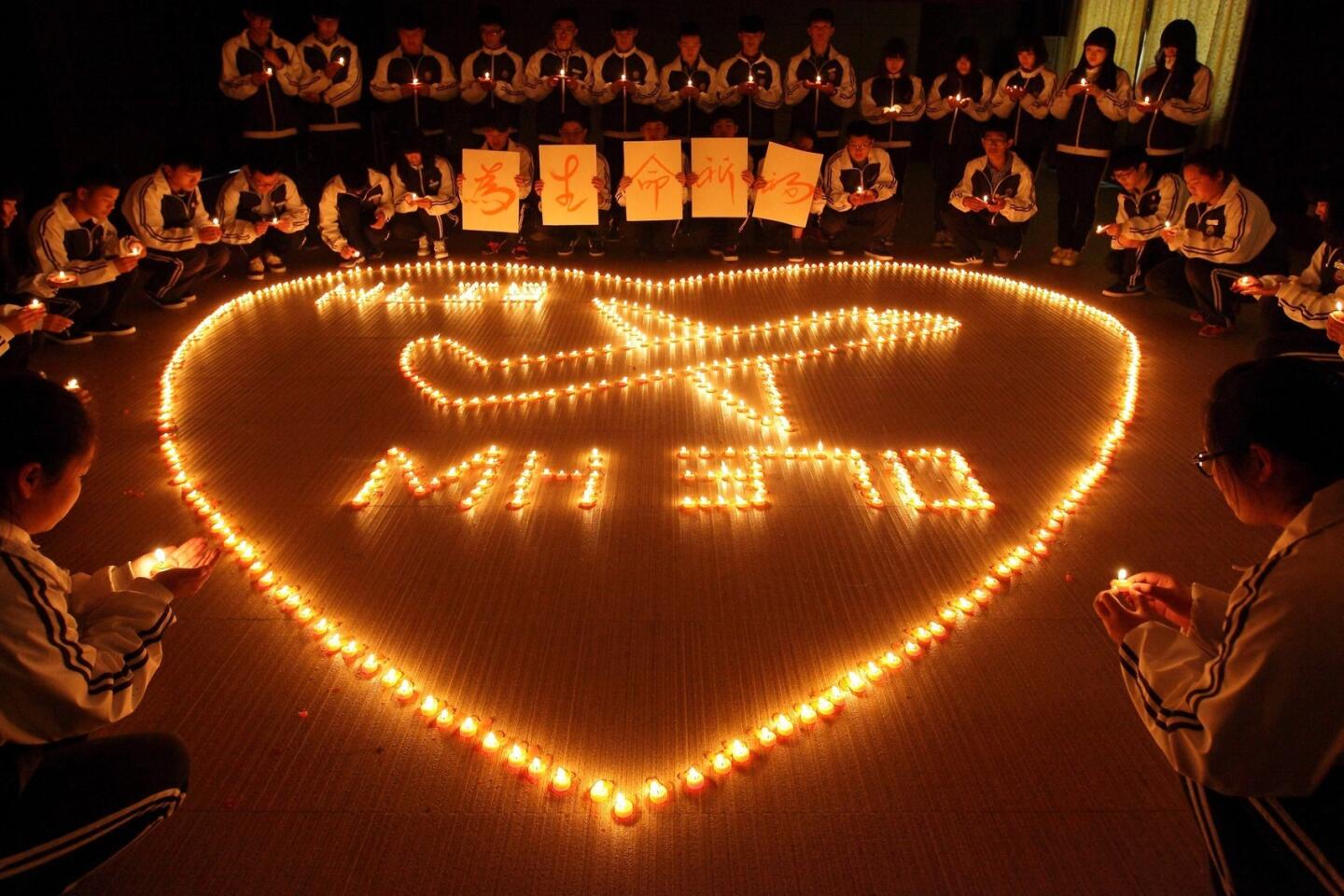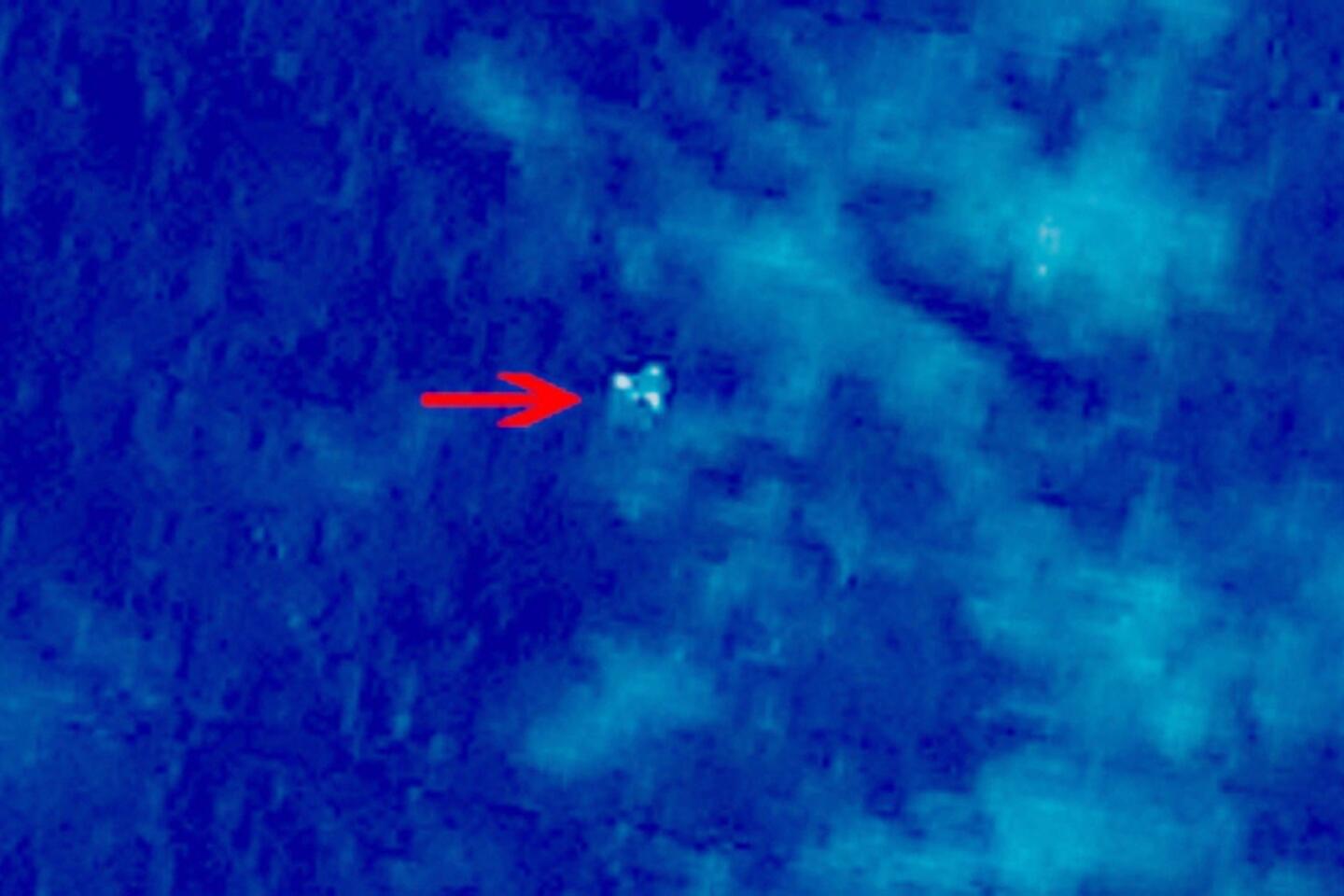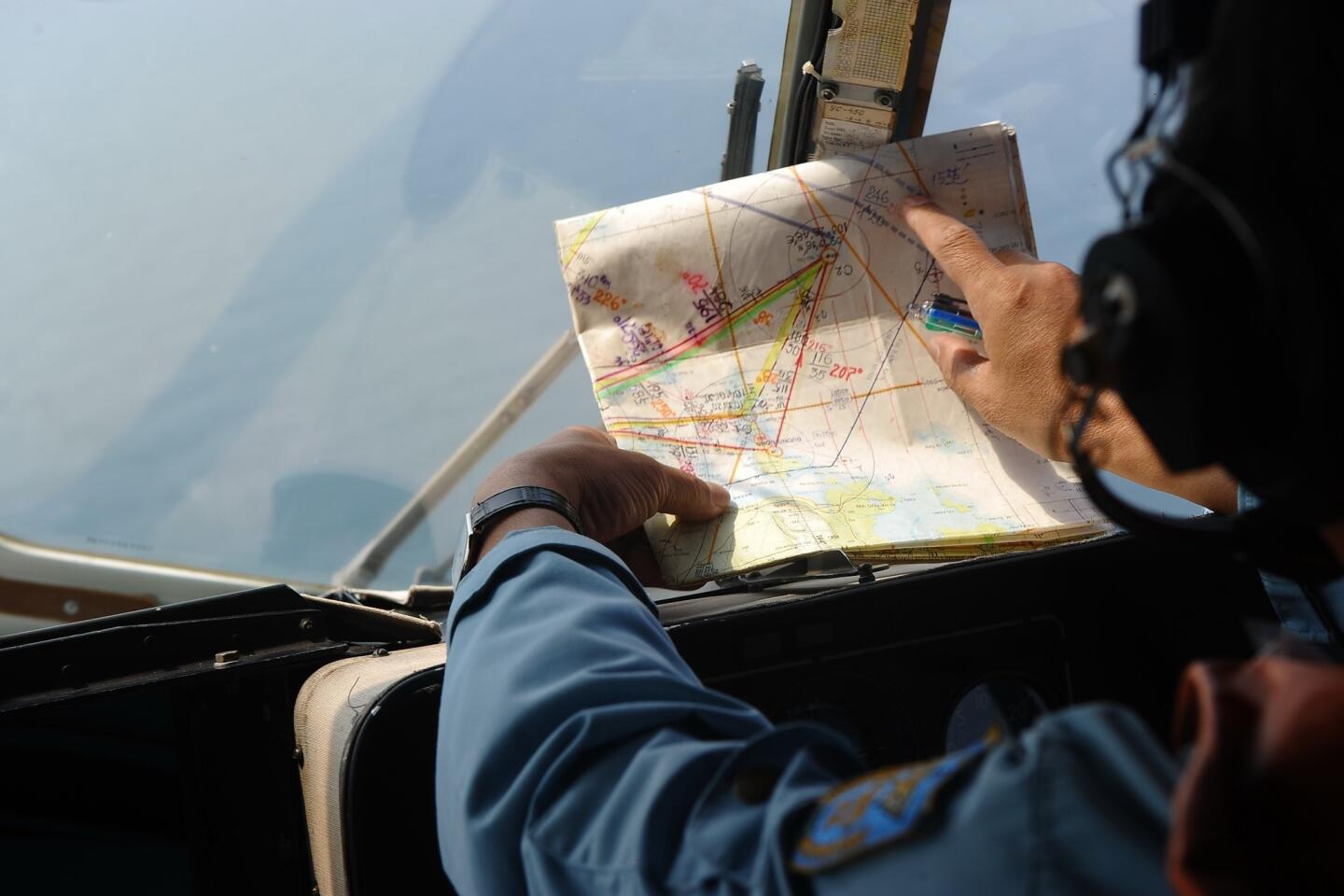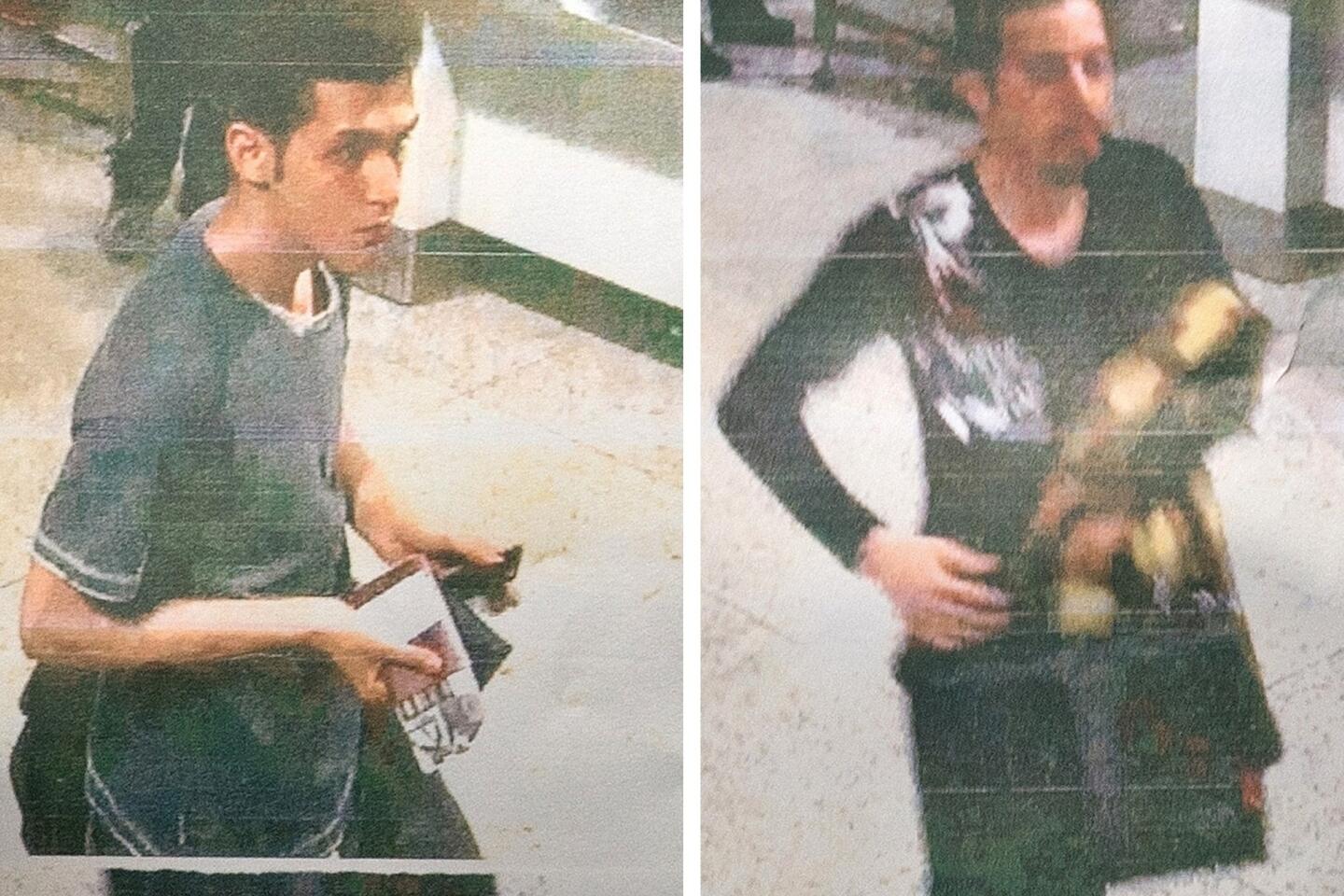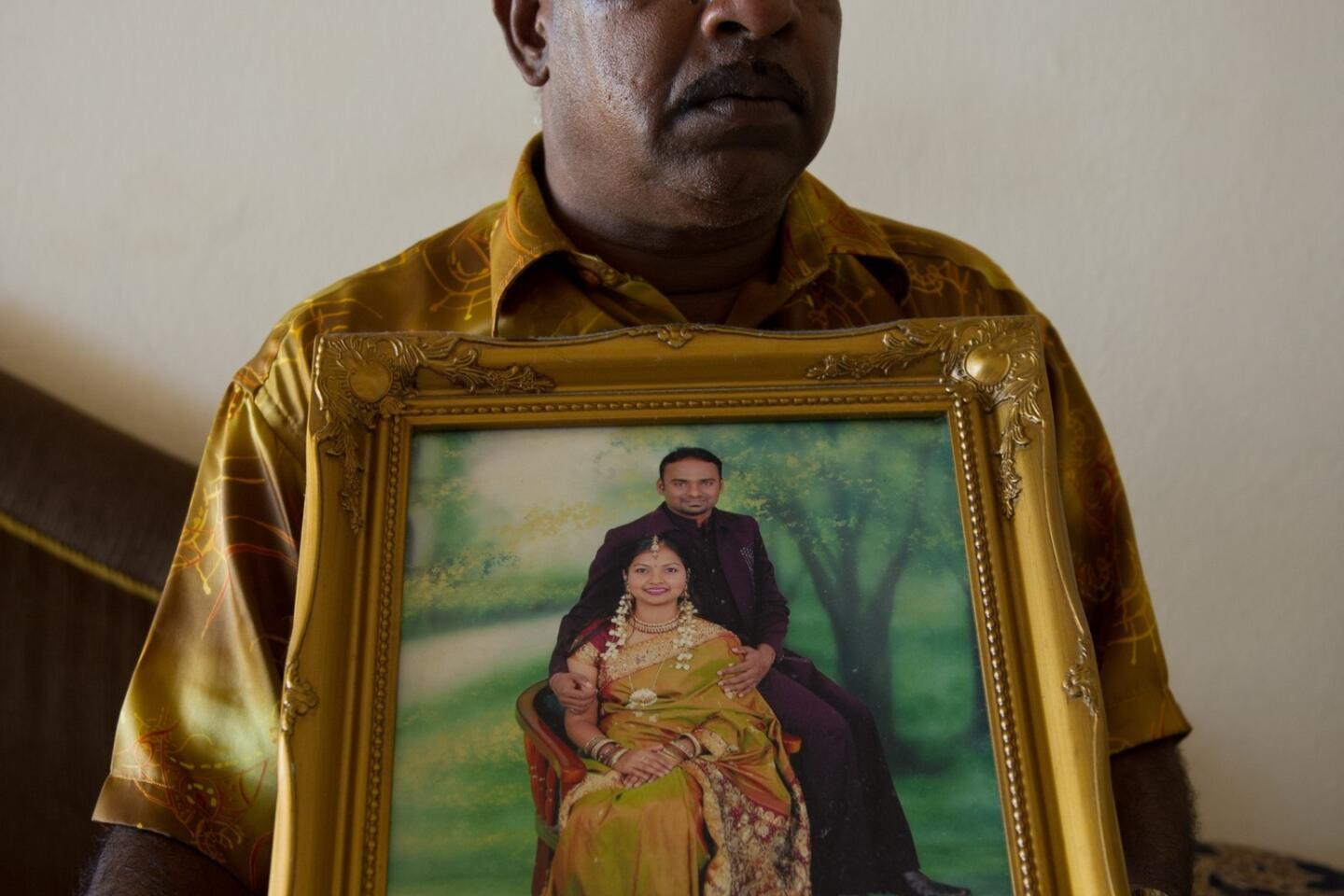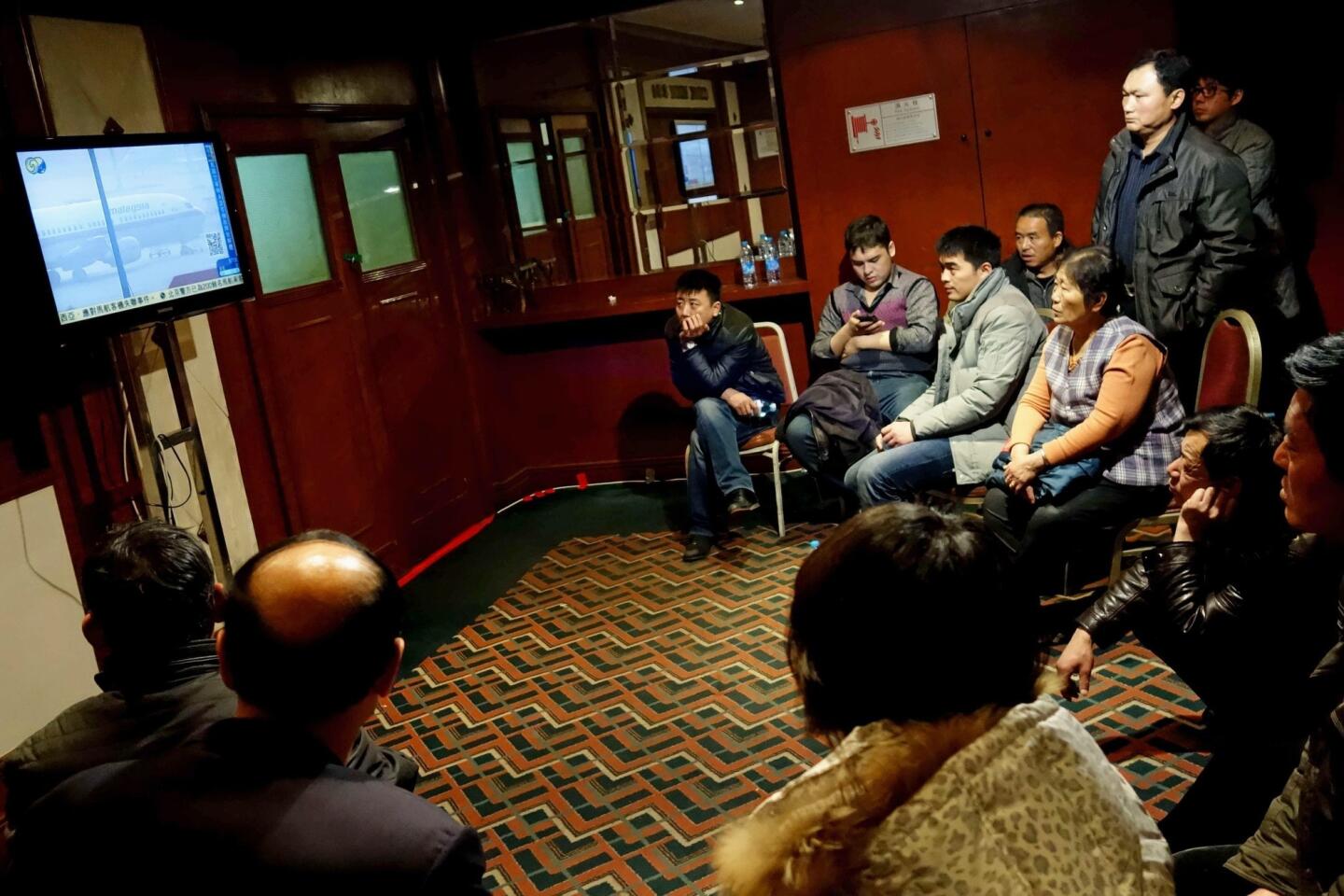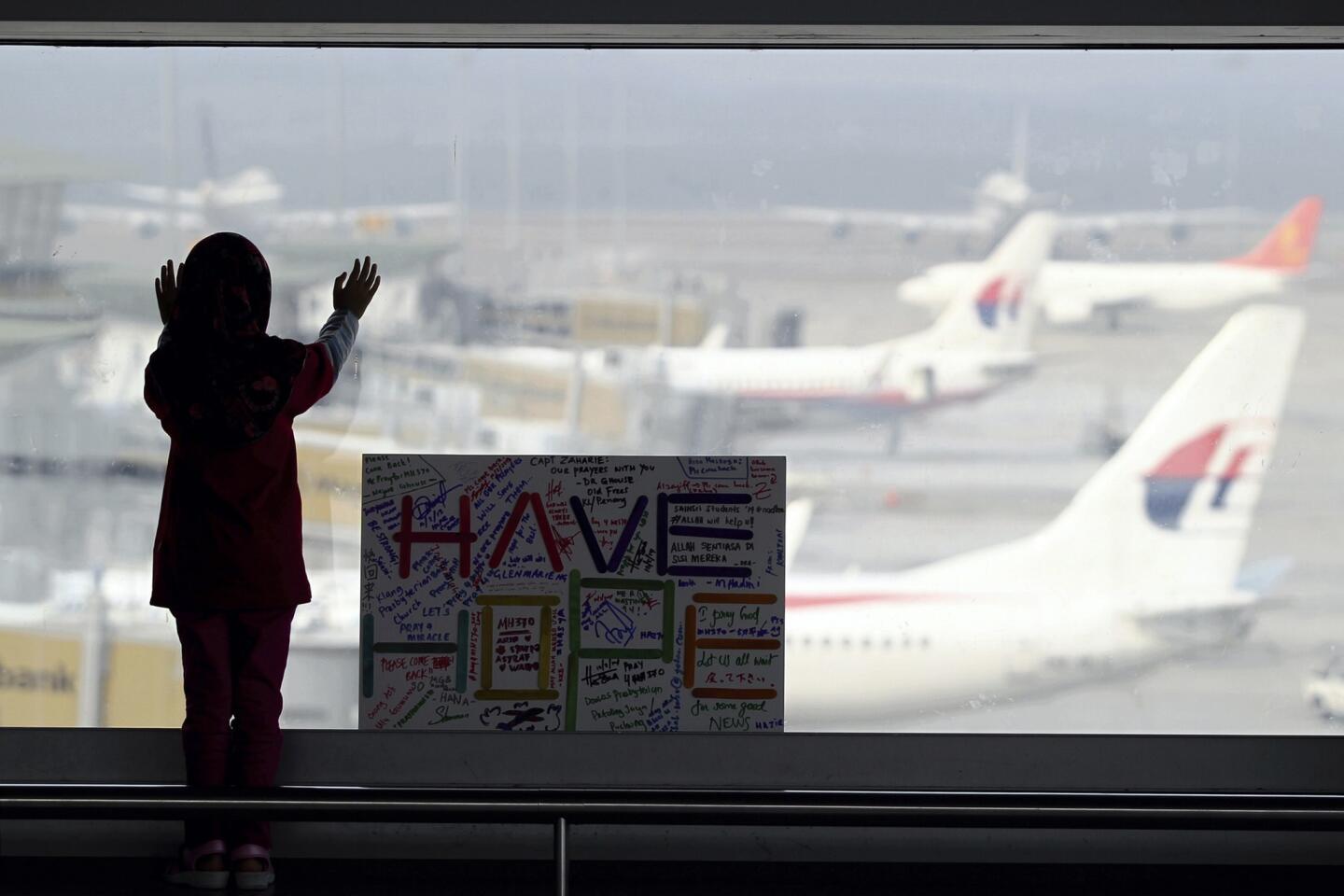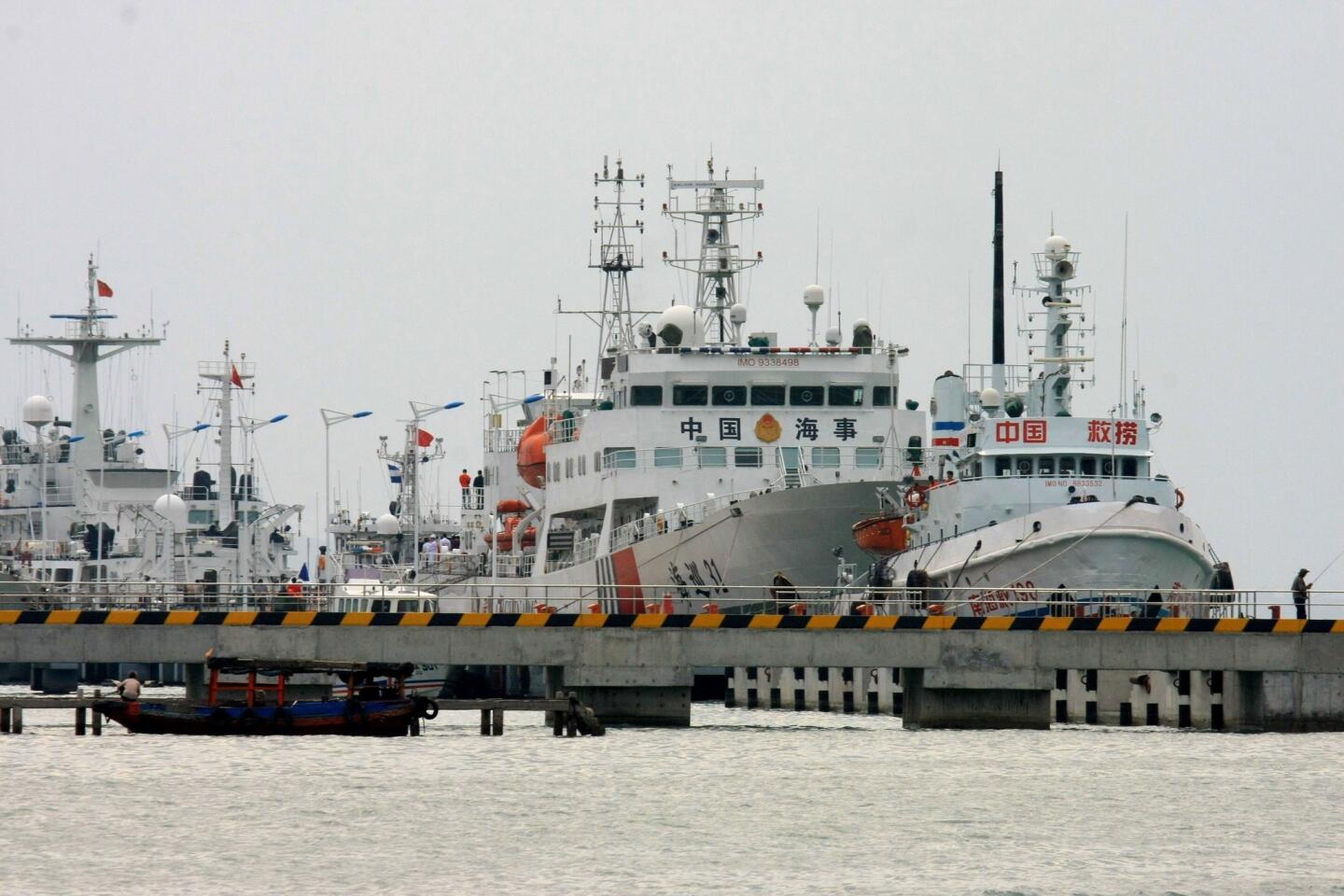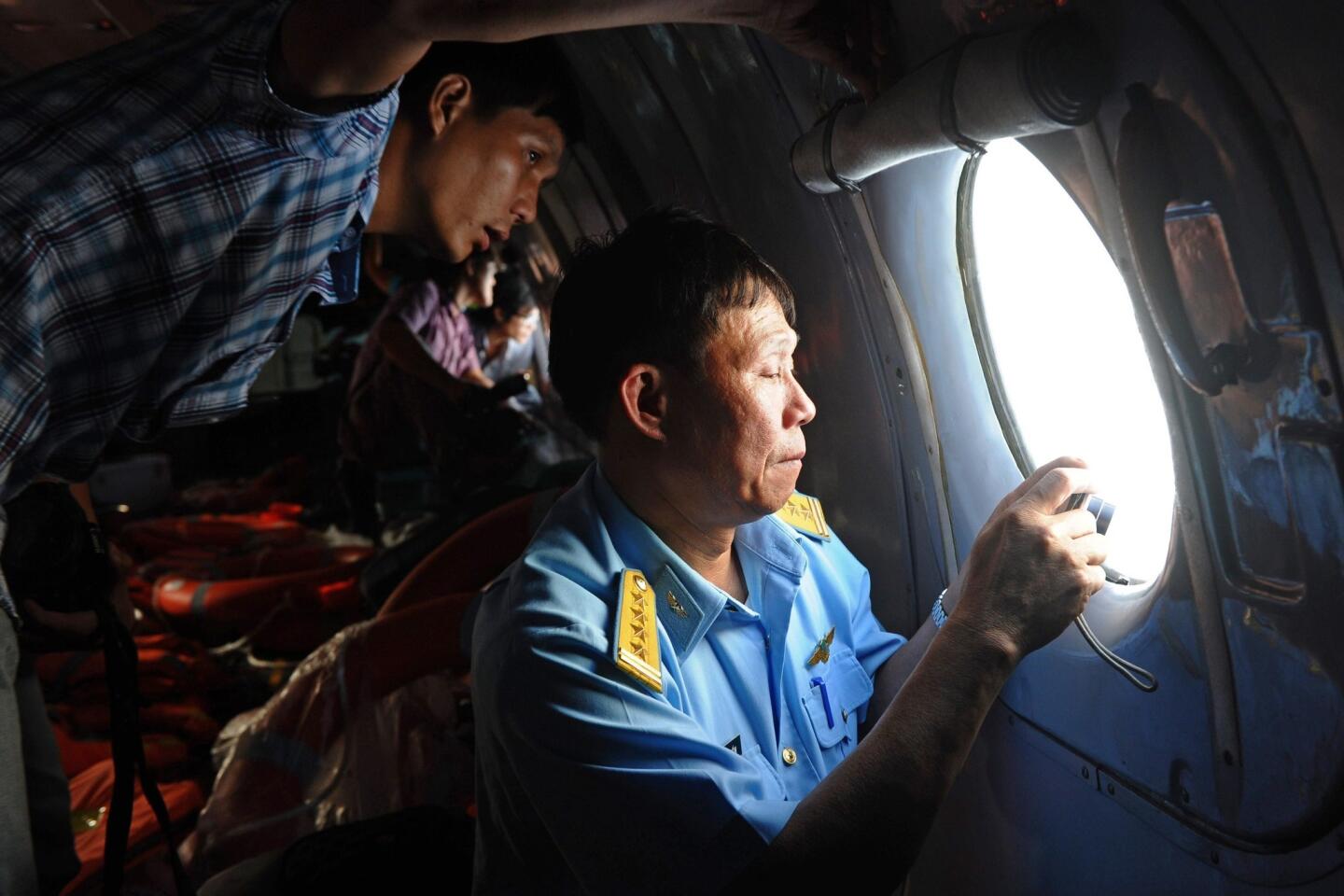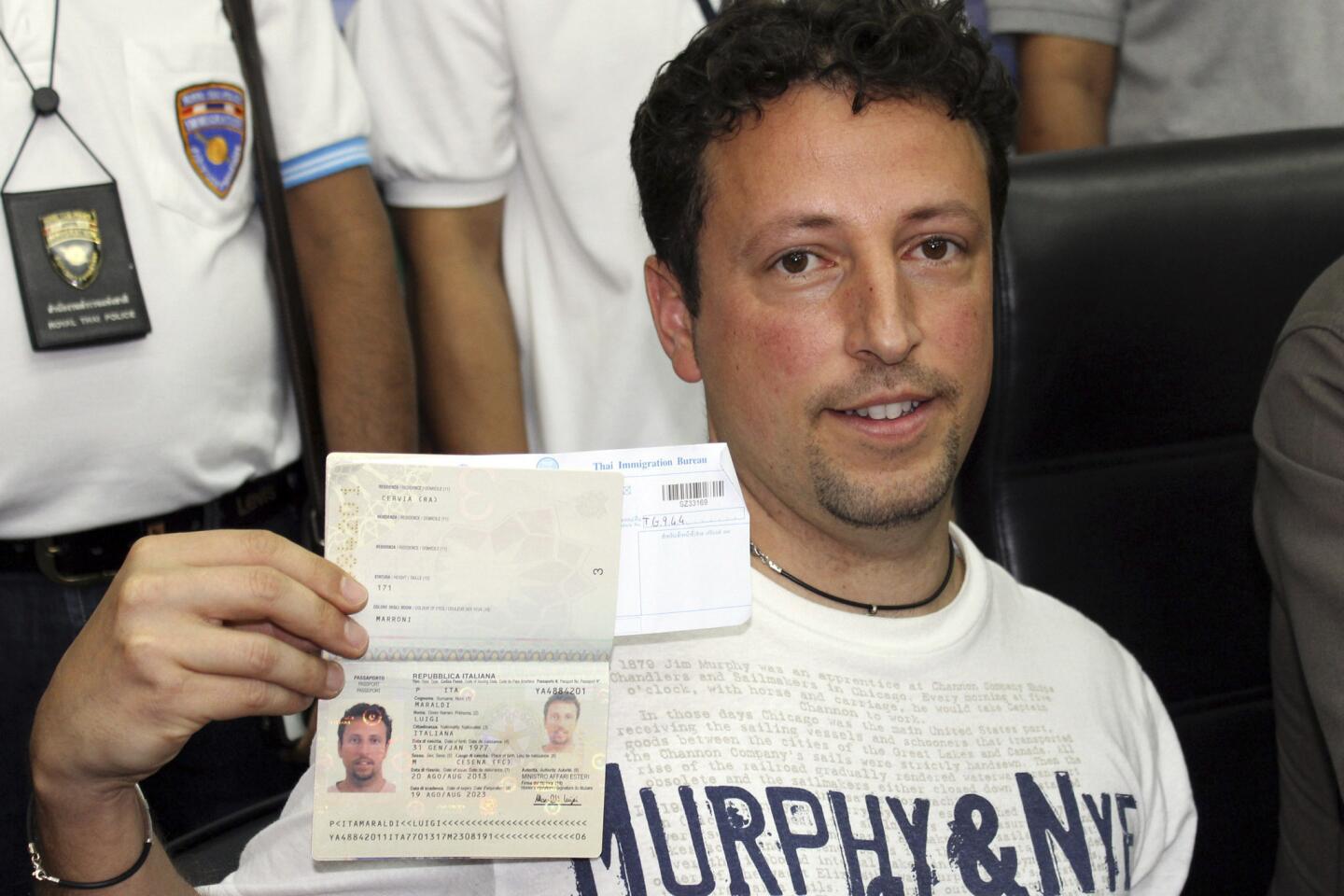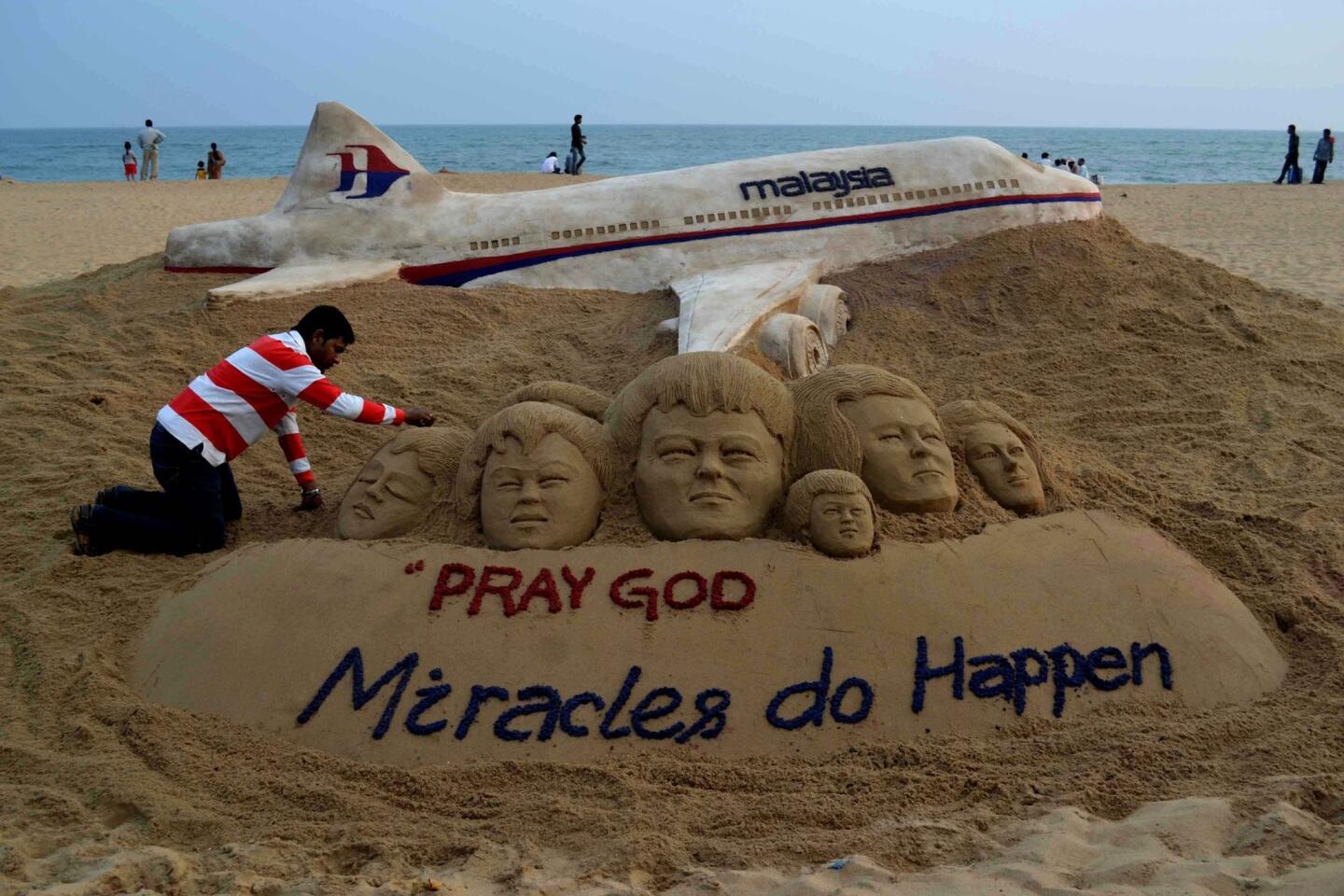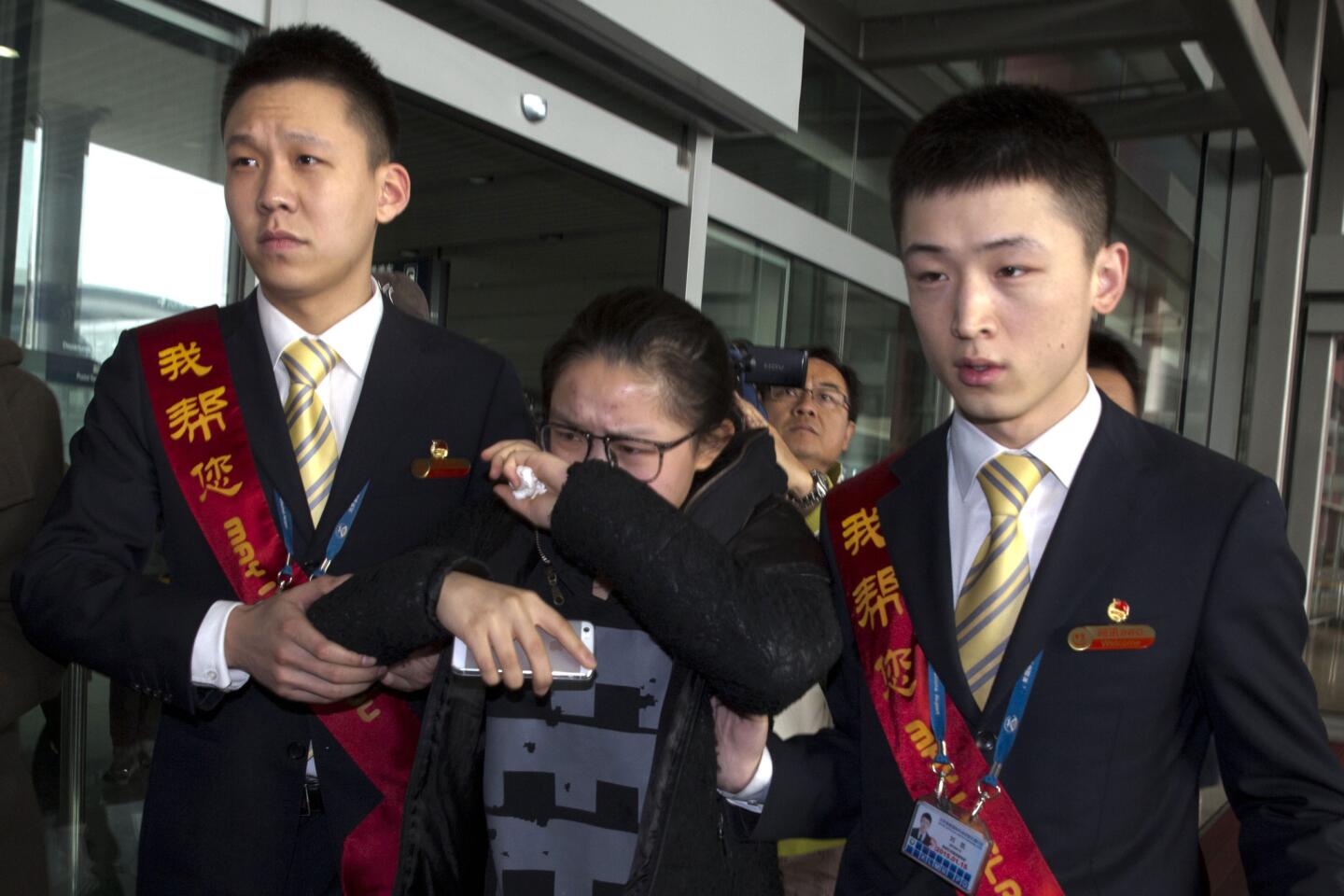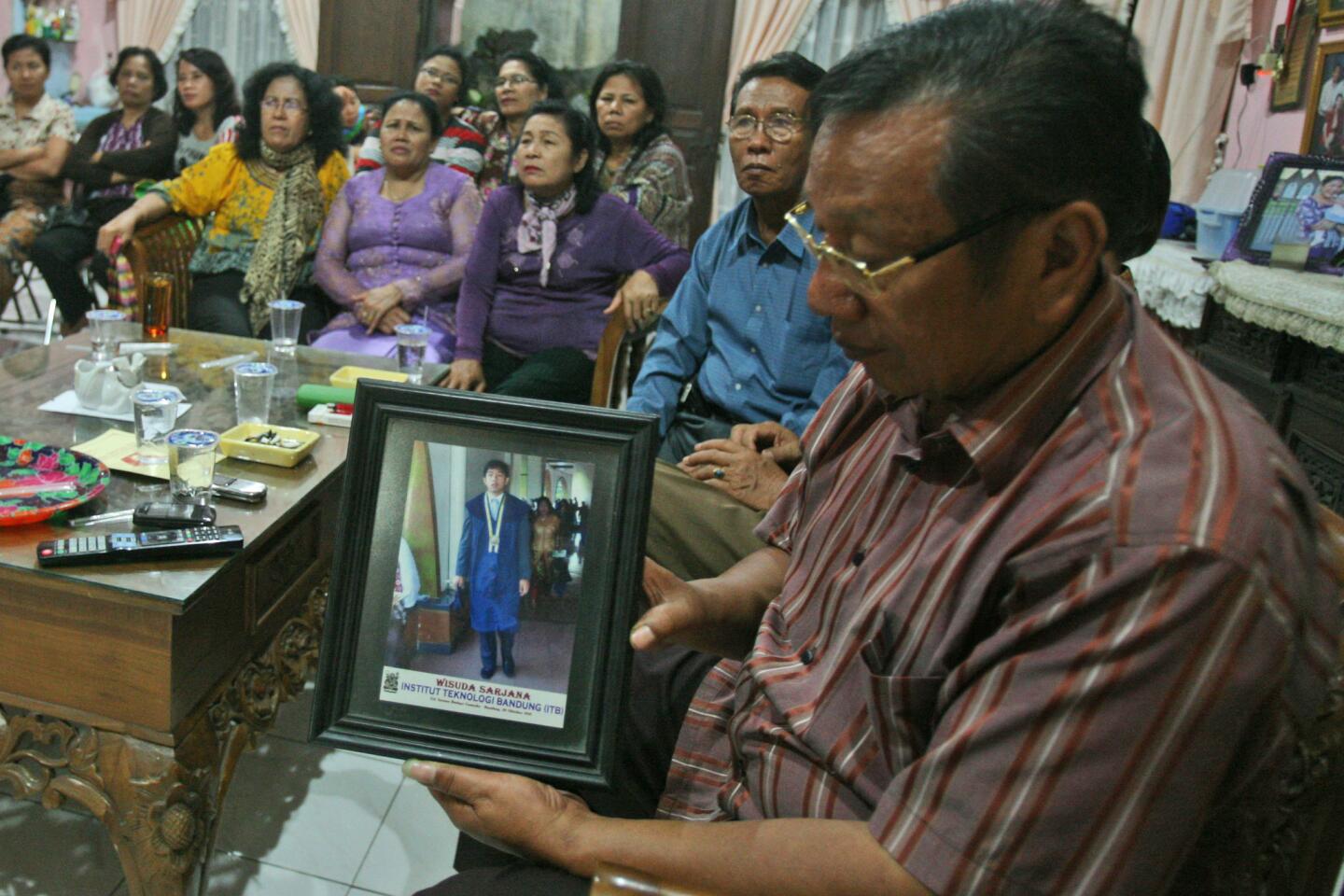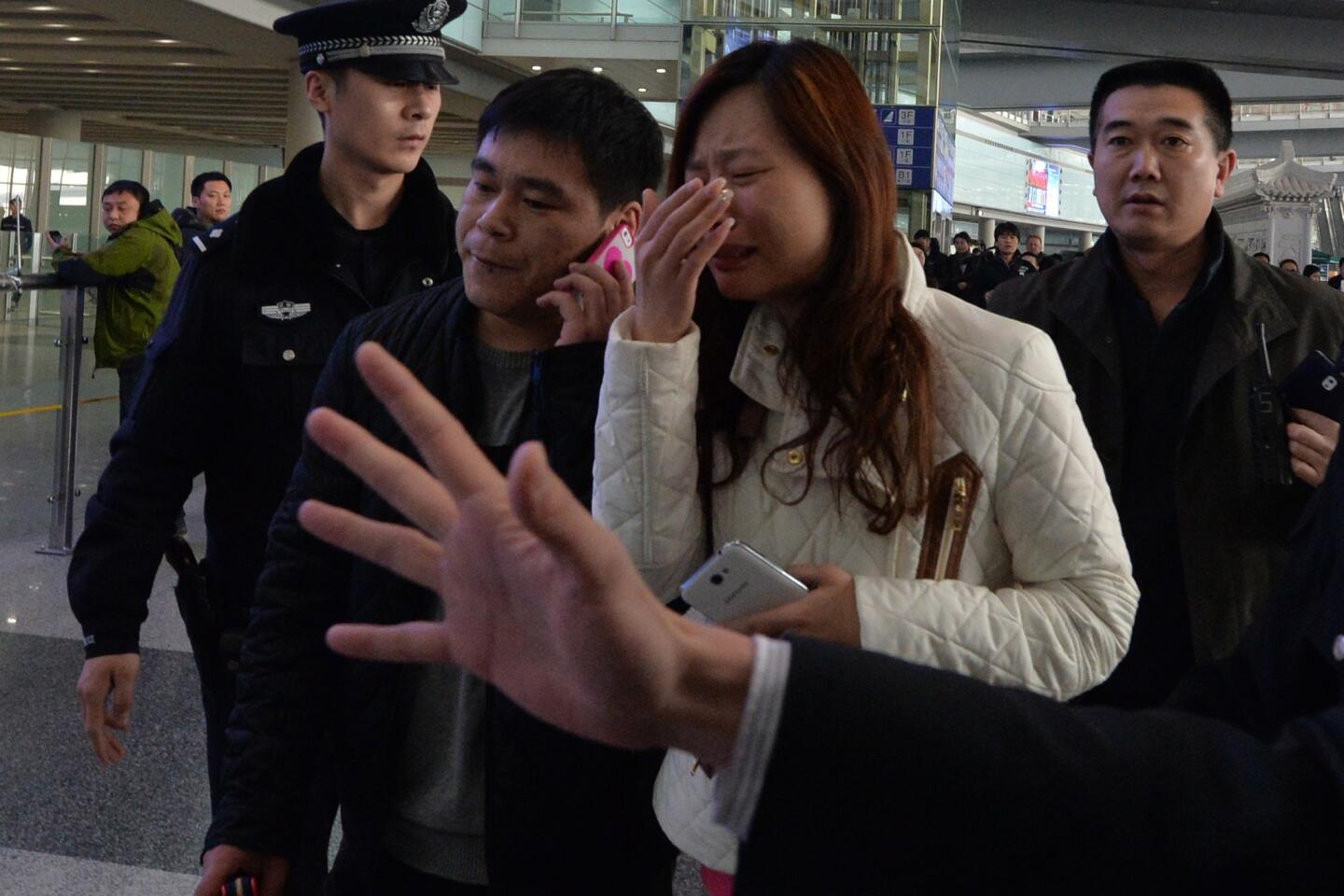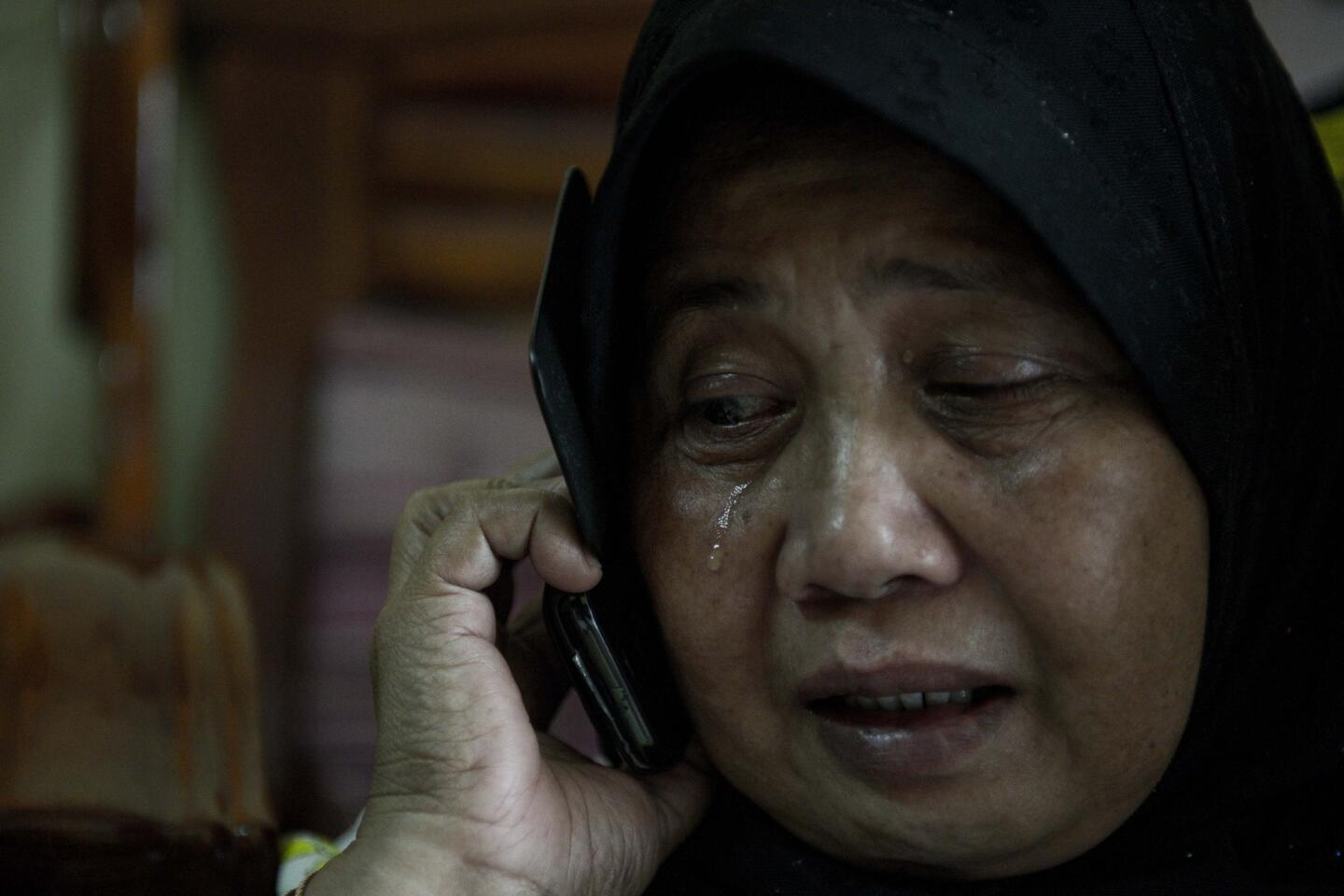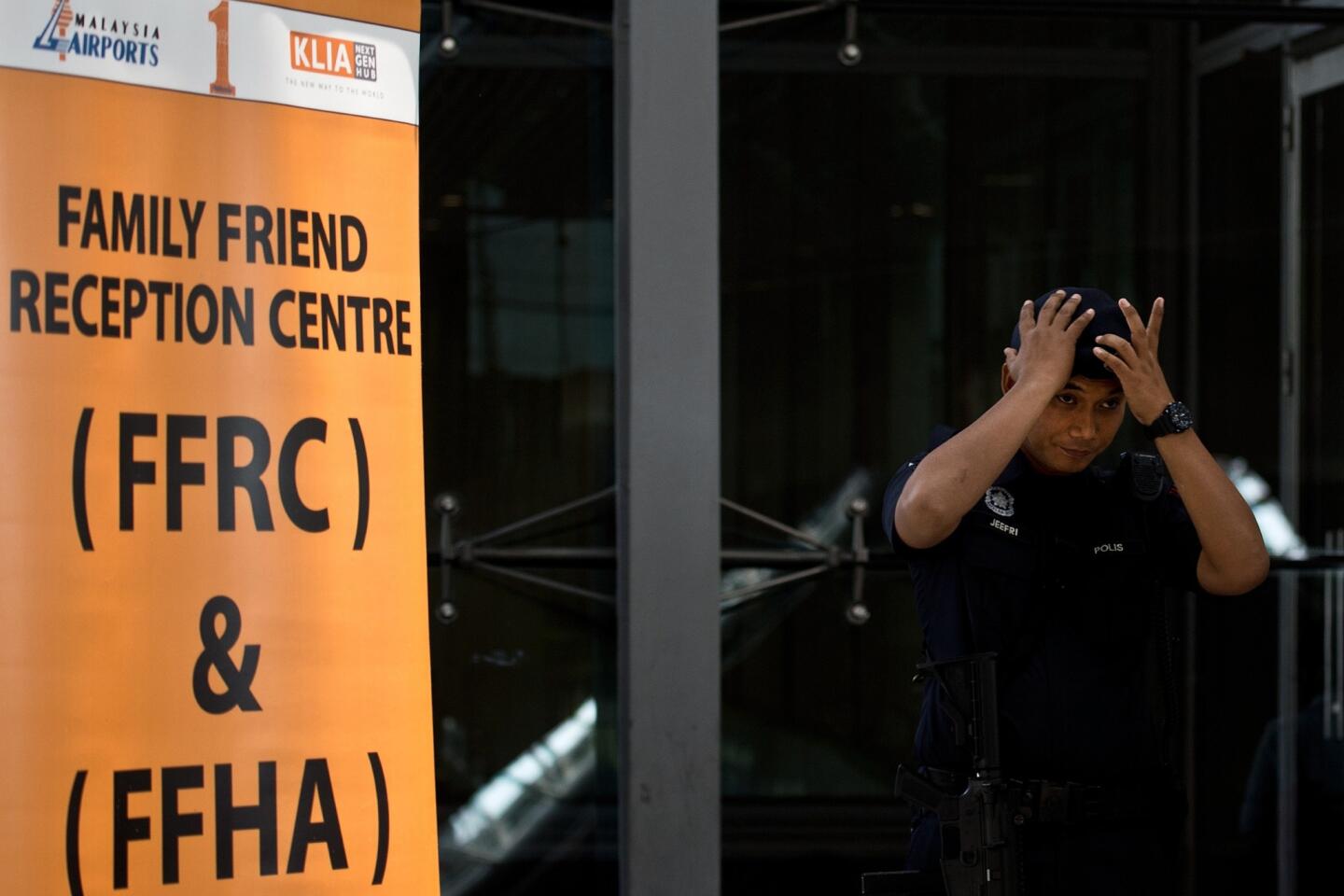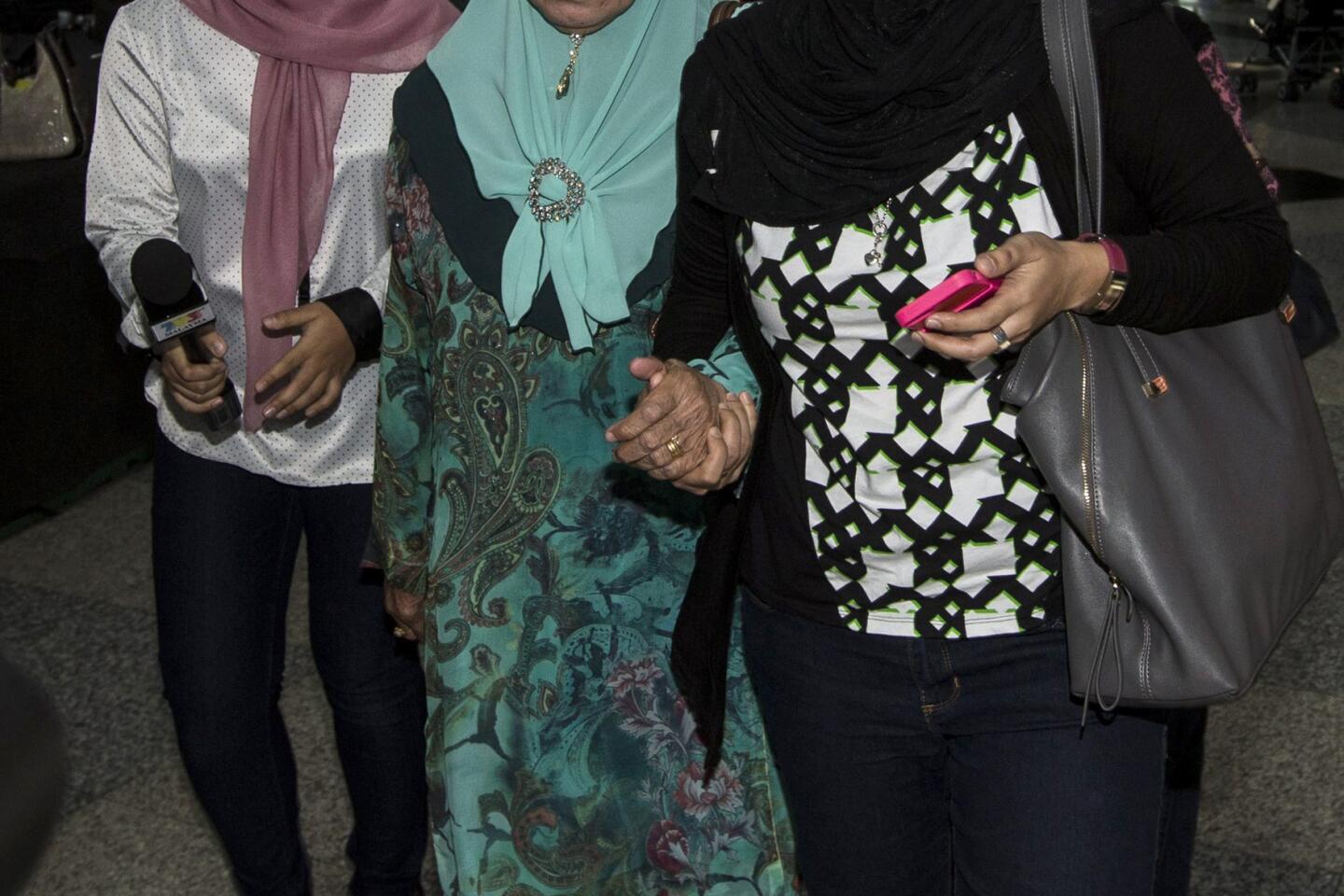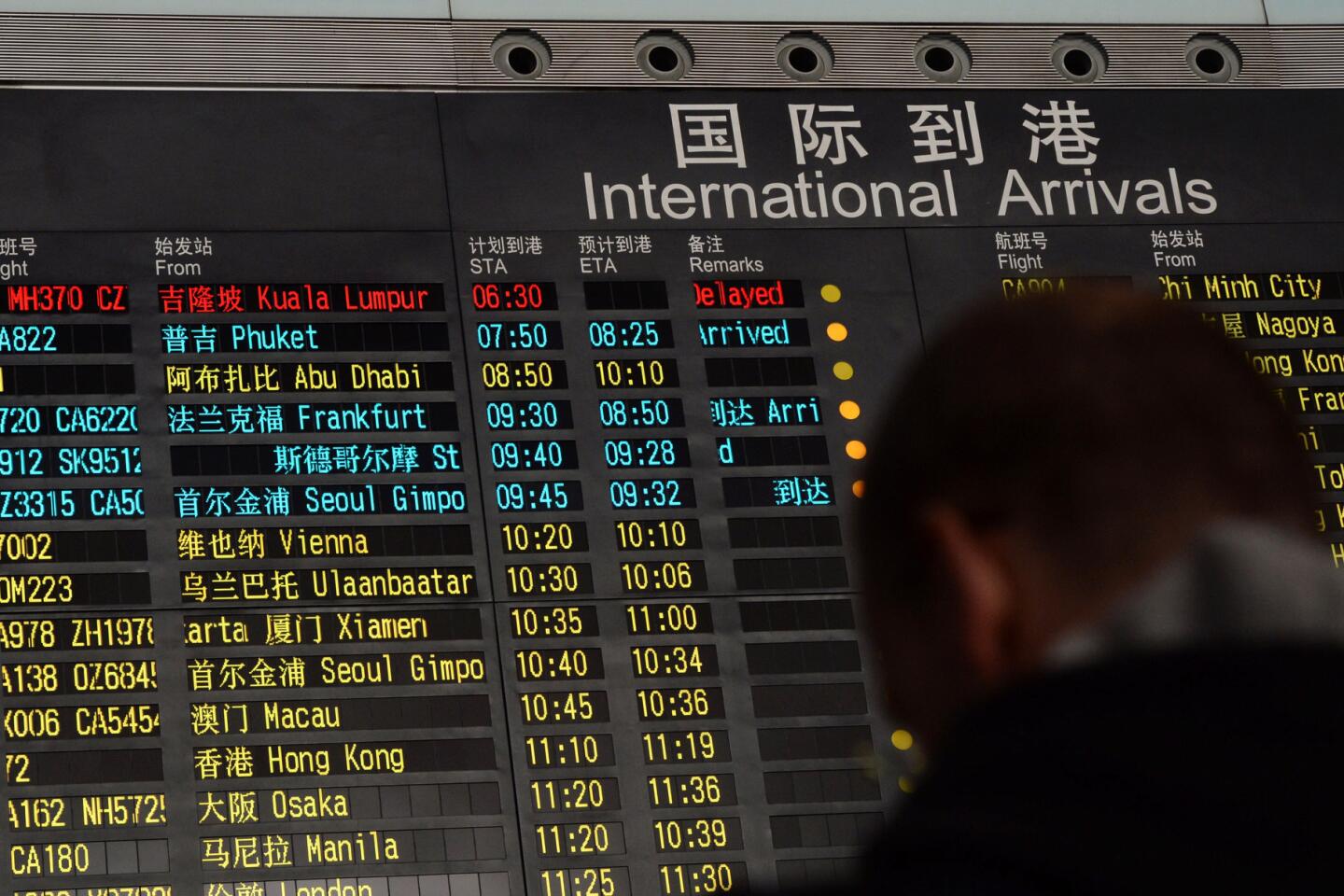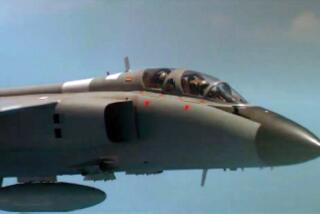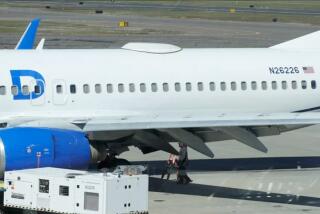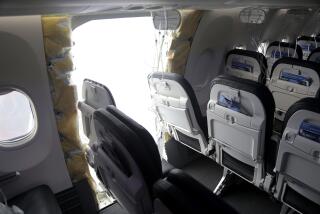U.S. pulls out ship, sends in planes to hunt for Malaysia jetliner
The U.S. military pulled its warship out of the search for Malaysia Airlines Flight 370 on Monday and will rely instead on sophisticated submarine-hunting aircraft, a sign of just how complex the international search for the missing Boeing 777 has become in its second week.
At least 26 nations have deployed ships, aircraft and satellites in one of the largest international coalitions ever mustered in a search and rescue operation.
Search teams are concentrating on wide bands in both the northern and southern hemispheres west of Malaysia, crossing the territories of a dozen Asian nations as well as the sparsely traveled waters of the southern Indian Ocean. State media said Tuesday that China had begun searching its own territory.
PHOTOS: Malaysia Airlines plane missing
U.S. authorities have described the southern corridor as the most promising zone, though authorities have not ruled out any area, nor any of several scenarios involving foul play, such as a suicide attempt by a crew member or a hijacking.
The Kidd, a guided-missile destroyer based in San Diego, takes with it a pair of MH-60R Seahawk helicopters that have scoured 15,000 square miles of ocean since March 8, when the Boeing 777 mysteriously vanished en route from Kuala Lumpur to Beijing.
No debris or wreckage related to the aircraft or the 239 passengers and crew has been found. The Navy said the move was made after consulting the Malaysian government.
Replacing the ship are the P-8 Poseidon submarine-hunting aircraft, flying out of western Australia, and its Cold War predecessor, the P-3 Orion, flying out of Malaysia.
Based on a heavily modified Boeing 737 airframe, the Poseidon typically flies at 5,000 to 10,000 feet and can search for as long as nine hours, according to the Pentagon. It carries advanced radar and electronic sensors to detect, identify, locate and track surface targets, and can deploy sonar systems to receive signals of what it senses below the surface.
Authorities in Kuala Lumpur, the capital of Malaysia, said Monday that the last voice communication from the jetliner came from the copilot, Fariq Abdul Hamid.
“All right, good night,” Fariq said at 1:19 a.m., about an hour after takeoff, giving no indication that anything was amiss.
Contradicting earlier statements, the Malaysians said they did not know whether that voice communication came before or after tracking systems on the aircraft were switched off. The automated Aircraft Communications Addressing and Reporting System, which transmits every half-hour, stopped sometime between a successful connection at 1:07 a.m. and its next slated report at 1:37 a.m.
Data indicate the aircraft then turned west and passed back over the Malaysian peninsula on an erratic path that included several precipitous elevation rises and plunges.
Malaysia press reported Monday that whoever piloted the plane had used “terrain masking techniques,” flying as low as 5,000 feet and hugging mountains to avoid detection.
A satellite attempting to connect with other tracking hardware on the plane was able to establish only the distance to the aircraft and a wide range of possible positions. Those curved bands form the backbone of the search area — one spans much of Southeast Asia into western China toward the Central Asian countries of Kyrgyzstan, Kazakhstan, Uzbekistan and Tajikistan. The other arcs over predominantly open water south of Indonesia.
If the plane had flown at maximum speed, it was sufficiently fueled to have traveled more than 3,000 miles, reaching the eastern shores of the Caspian Sea, which is bordered by Kazakhstan and Turkmenistan, officials said at Monday’s news conference.
In China, the head of an entertainment company told the Los Angeles Times on Monday that stolen passports carried by two Iranian men to board the missing aircraft had been used last year by two people applying for visas to work as entertainers in China.
Xie Zhuoling, the head of a firm that recruits foreign performers for nightclubs and hotels, said employment contracts had been signed in June for Christian Kozel, an Austrian, and Luigi Maraldi, an Italian, to work as dancers in Ningxia, northern China.
“I remember at the time, these contracts looked very suspicious. Normally when we recruit performers they are from the Philippines or Russia, where wages are cheap, not Western European countries like Italy and Austria,” said Xie, who says an office manager for his company, Ningxi Overseas Prosperity Cultural Import Co., handled the contracts.
The media coverage of the investigation of those Iranian nationals jogged Xie’s memory, he said. When he pulled the contracts from his files, the names were the same: Christian Kozel and Luigi Maraldi.
“I was very scared. I went to the police,” said Xie in a telephone interview from the public security bureau office in Yingchuan.
Investigators believe the men were seeking residence and jobs in Europe. They reportedly had purchased the passports from a Thailand-based trafficking gang. Kozel and Maraldi had reported the passports stolen while on vacation in Thailand in 2012 and 2013, respectively.
Xie doesn’t know if the two Iranian men ever got visas or came to China. He didn’t see photographs of the men at the time the contract was signed and doesn’t know if the Iranians are the same people who were trying to come to China — or perhaps somebody entirely different using the same stolen passports.
The contracts, which Xie has made public, were for the men to work from mid-February to mid-May of this year at a base salary of $330 per month. The men, as well as a manager whose name was not listed in the contract, were all supposed to receive one-way plane tickets from Kuala Lumpur — something else that Xie said he found unusual.
The two Iranians since have been identified as 19-year-old Pouria Nour Mohammed Mehrdad and 29-year-old Delavar Seyed Mohammad Reza, who are friends. Reza was booked to Copenhagen and Mehrdad to Frankfurt, Germany, where his mother was waiting for him and called police when he did not arrive.
Hennigan reported from Los Angeles and Demick from Beijing.
More to Read
Start your day right
Sign up for Essential California for news, features and recommendations from the L.A. Times and beyond in your inbox six days a week.
You may occasionally receive promotional content from the Los Angeles Times.


